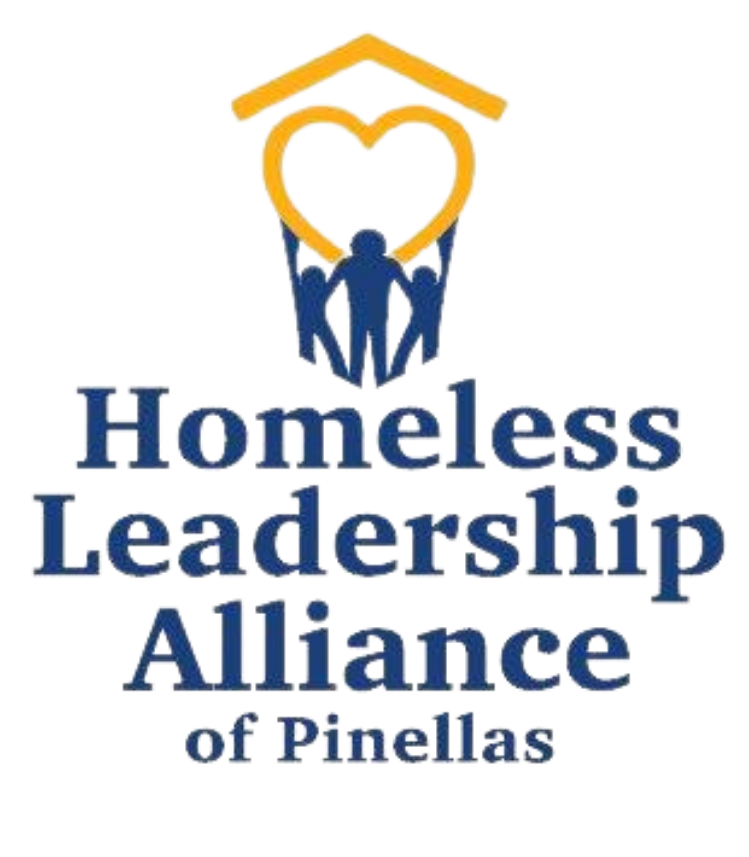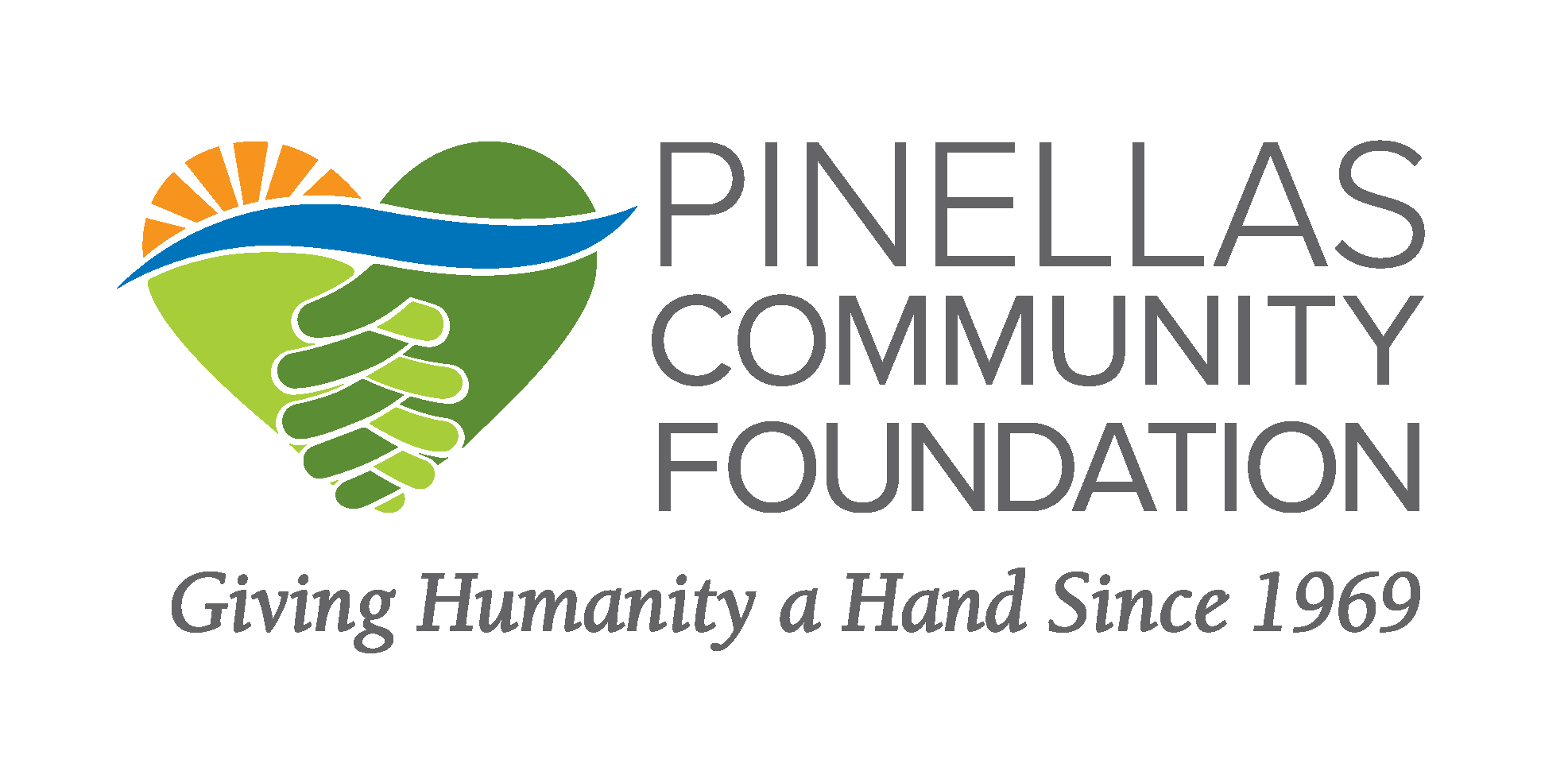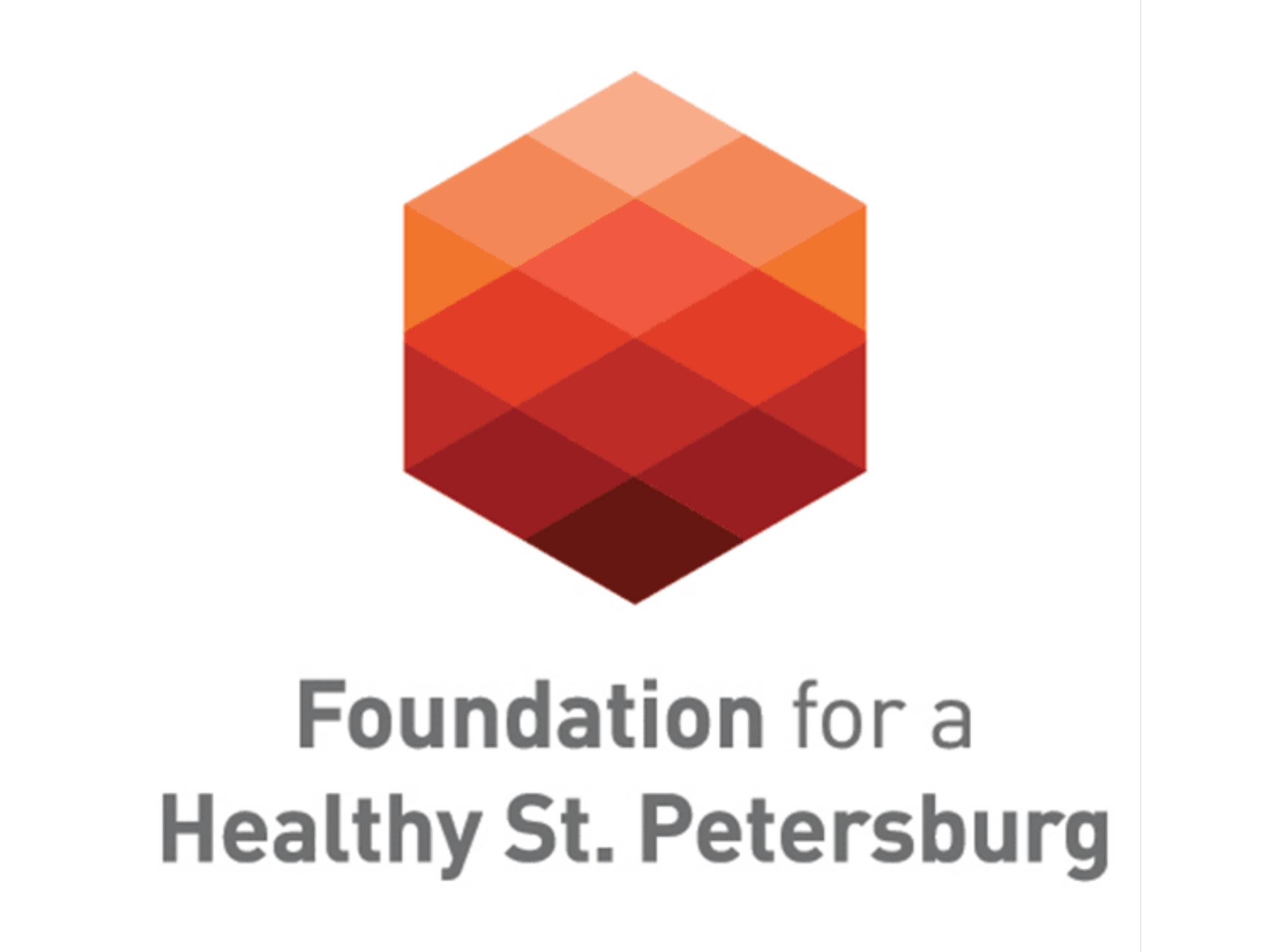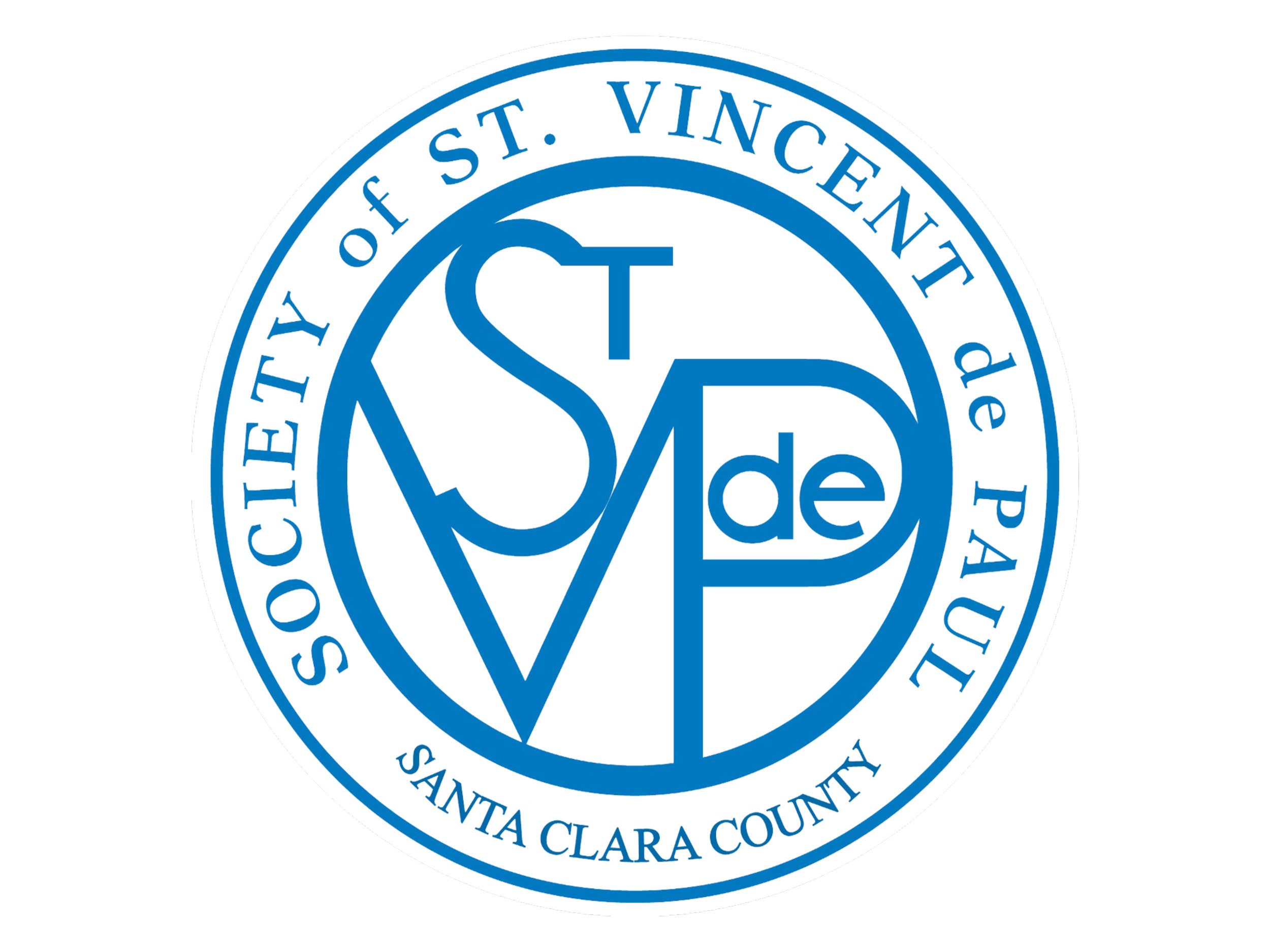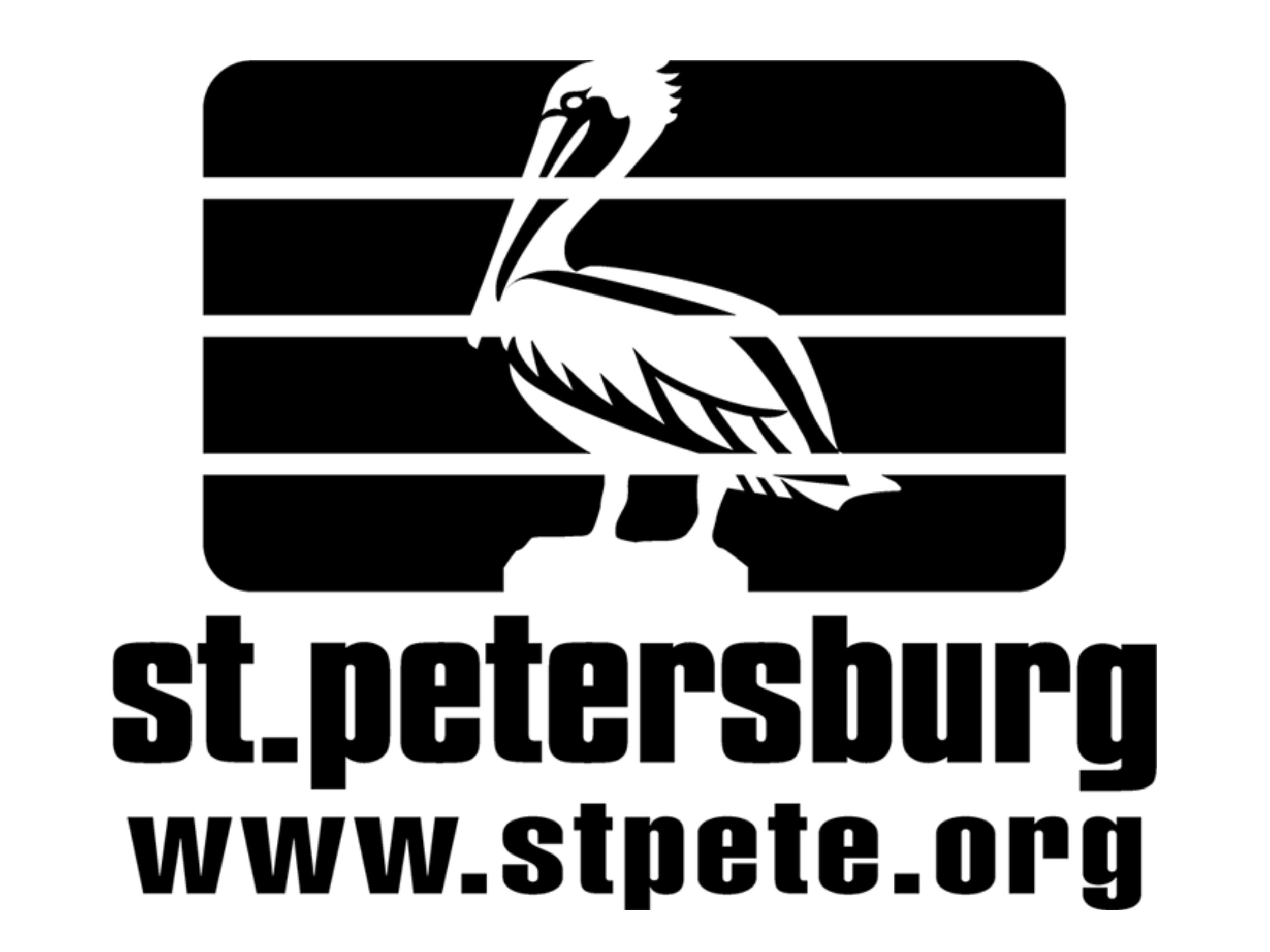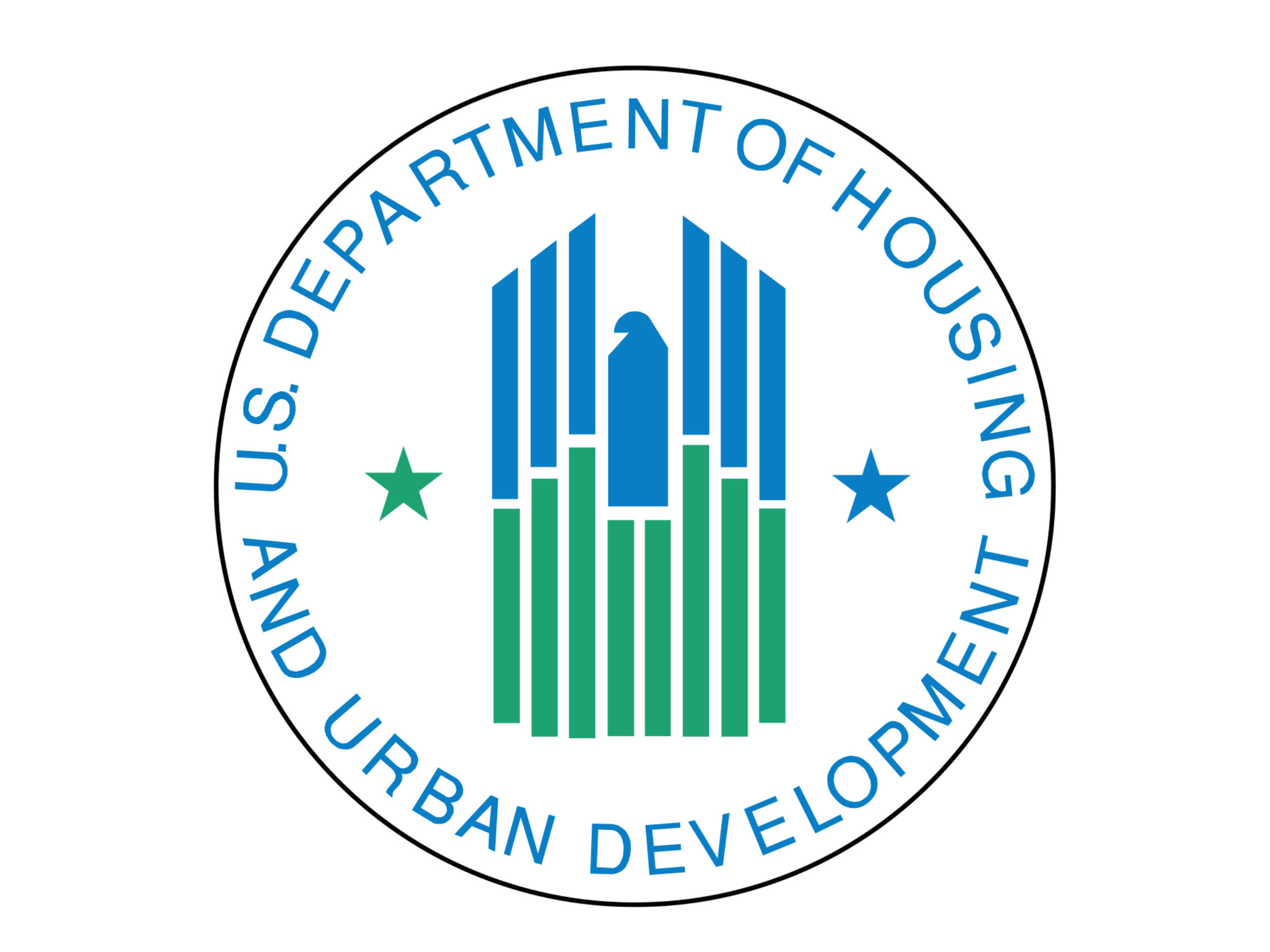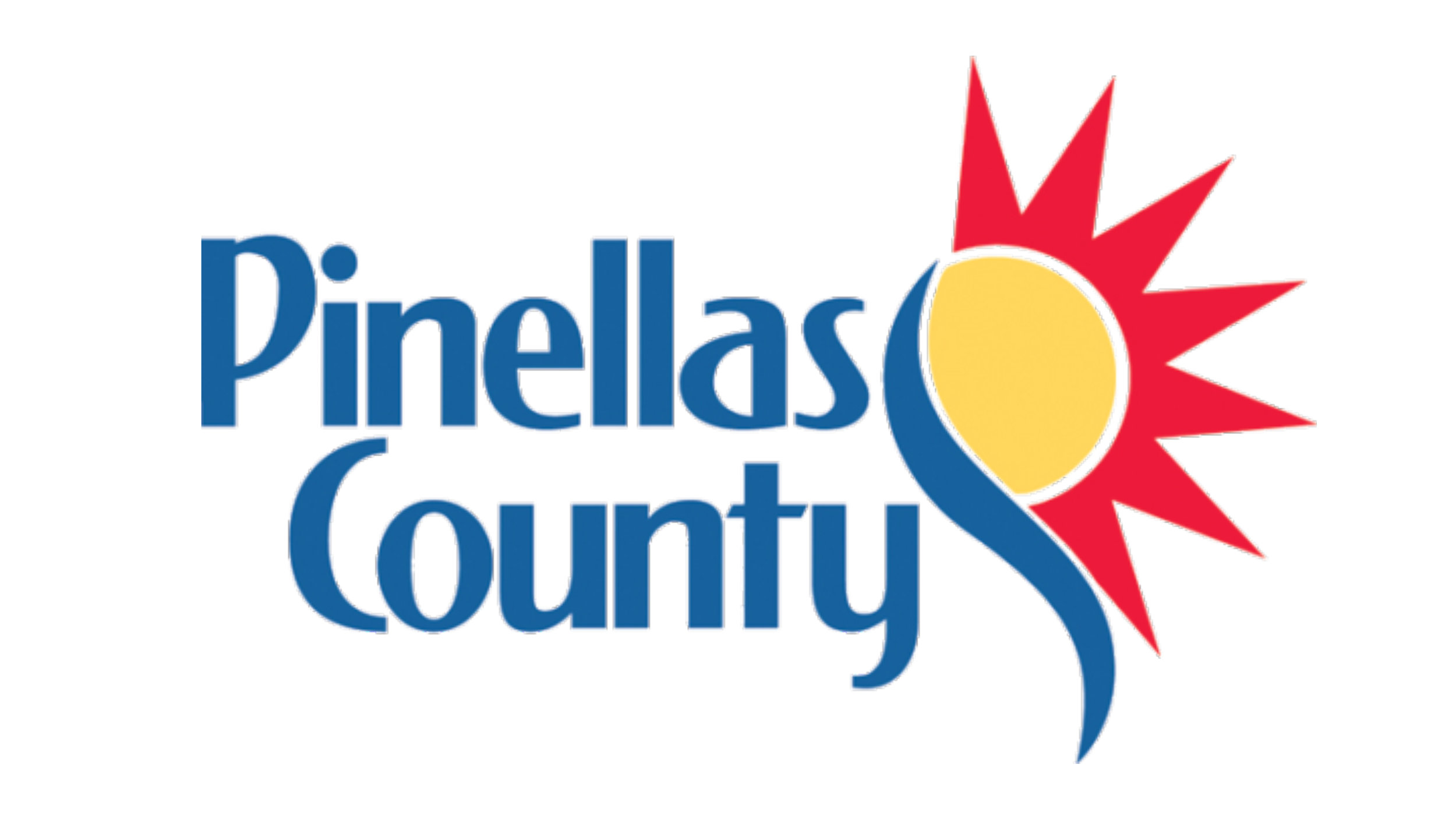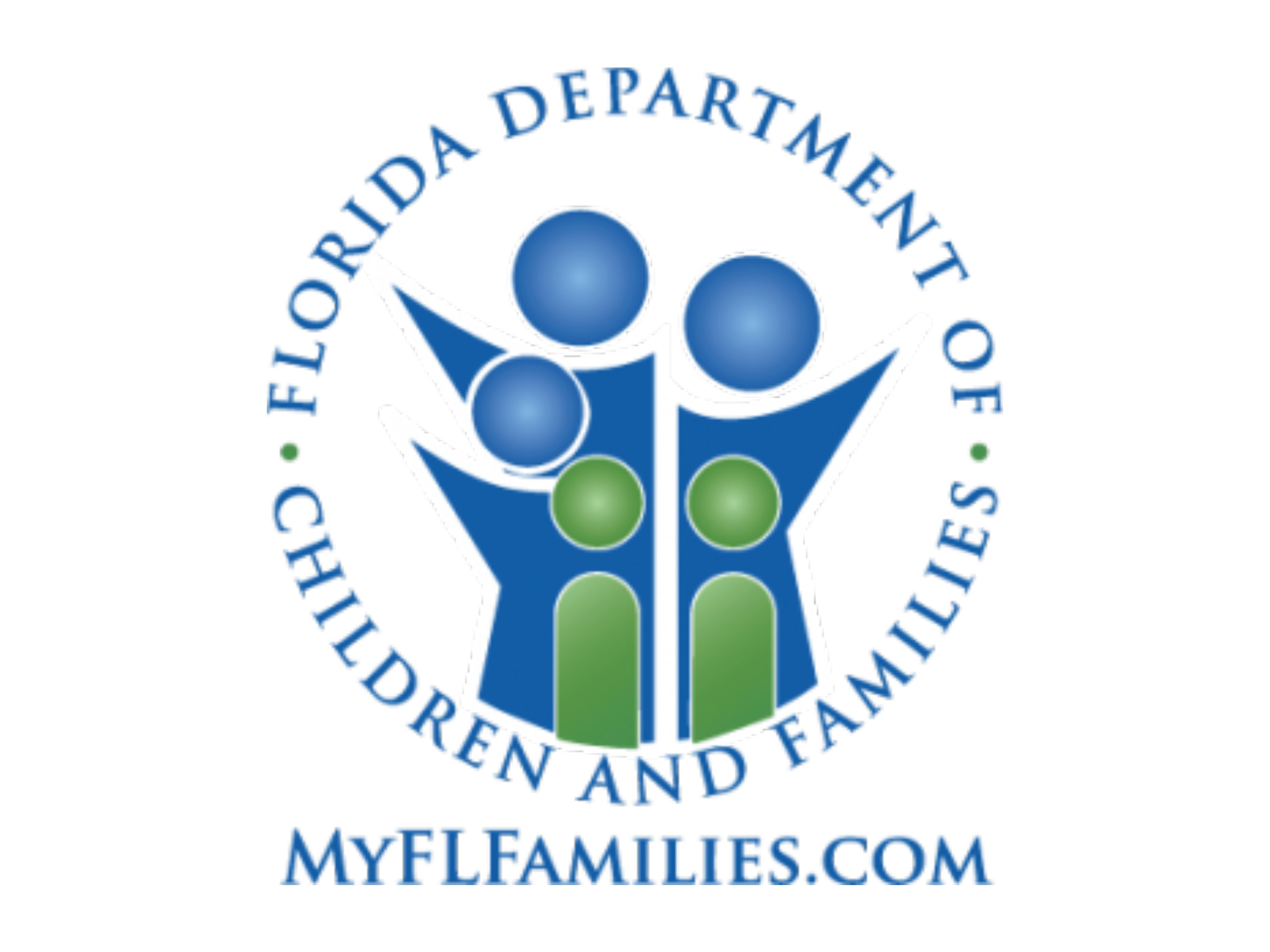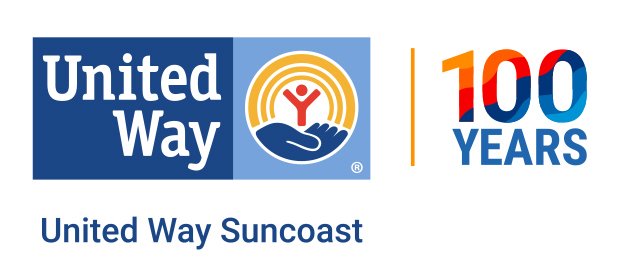The Point in Time Count (PIT) is a count of unsheltered and sheltered people experiencing homelessness on a single night in January. The U.S. Department of Housing and Urban Development (HUD) requires Continuums of Care (CoC) nationally to conduct Point in Time (PIT) Counts biannually, though communities are encouraged to participate annually. During this count, teams of trained volunteers are deployed into the community to survey people experiencing homelessness.
The PIT Count takes place in the last week of January and includes both sheltered and unsheltered persons (those residing in Emergency Shelters, Transitional Housing, or Safe Havens. Unsheltered persons are those residing in places not meant for human habitation, such as a car or the street.
Data collected during the Point in Time Count is reported to the U.S. Department of Housing and Urban Development (HUD). This data is also analyzed and compiled into a report known as the PIT Report.
An overview of findings from the 2024 Pinellas County PIT Count is below. A heat map is included in the 2024 PIT Data Dashboard.
Also available below is a list of key terms and archived Pinellas PIT Reports.
An Overview of 2024 Pinellas County Point in Time Report Findings
Unsheltered Data:
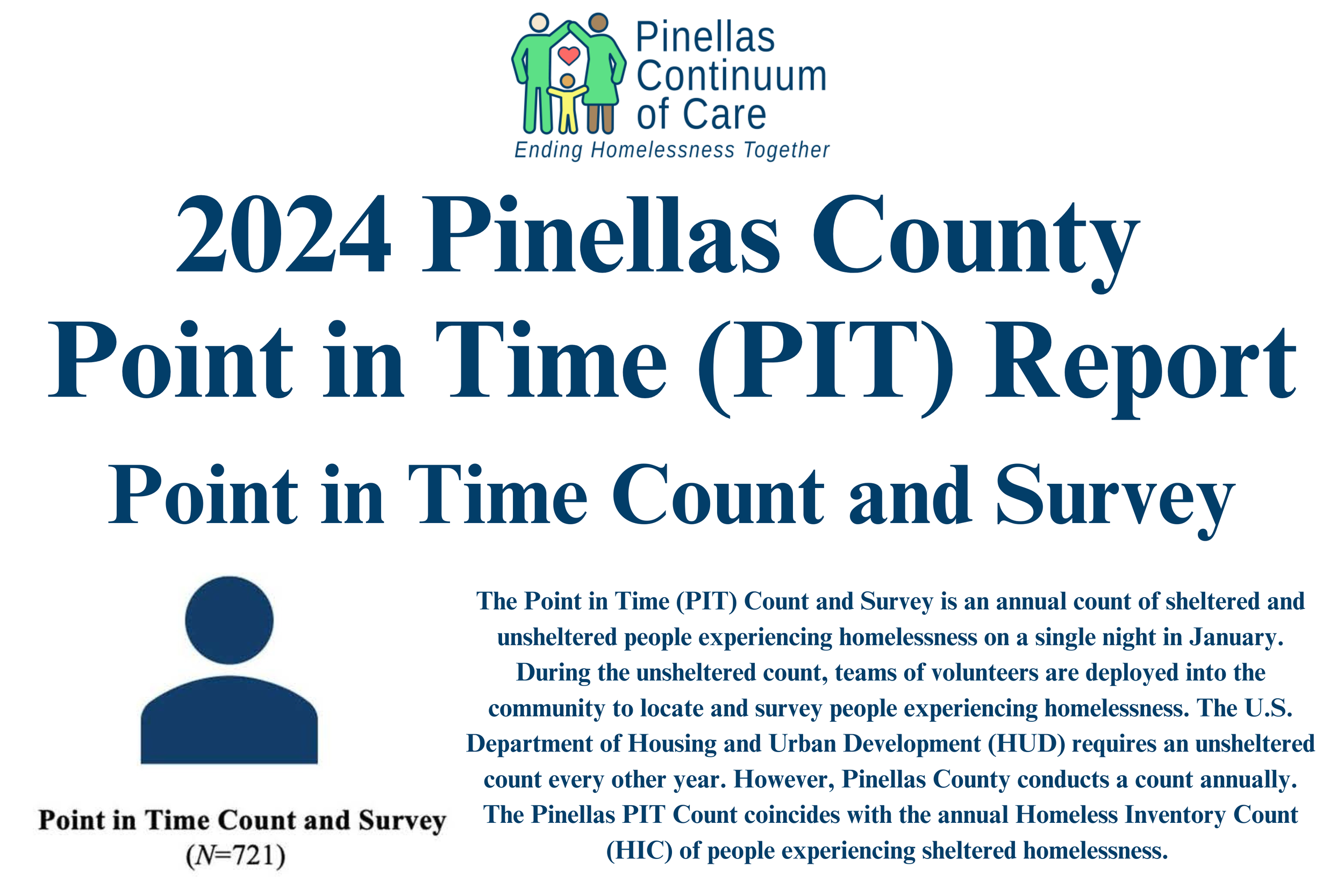
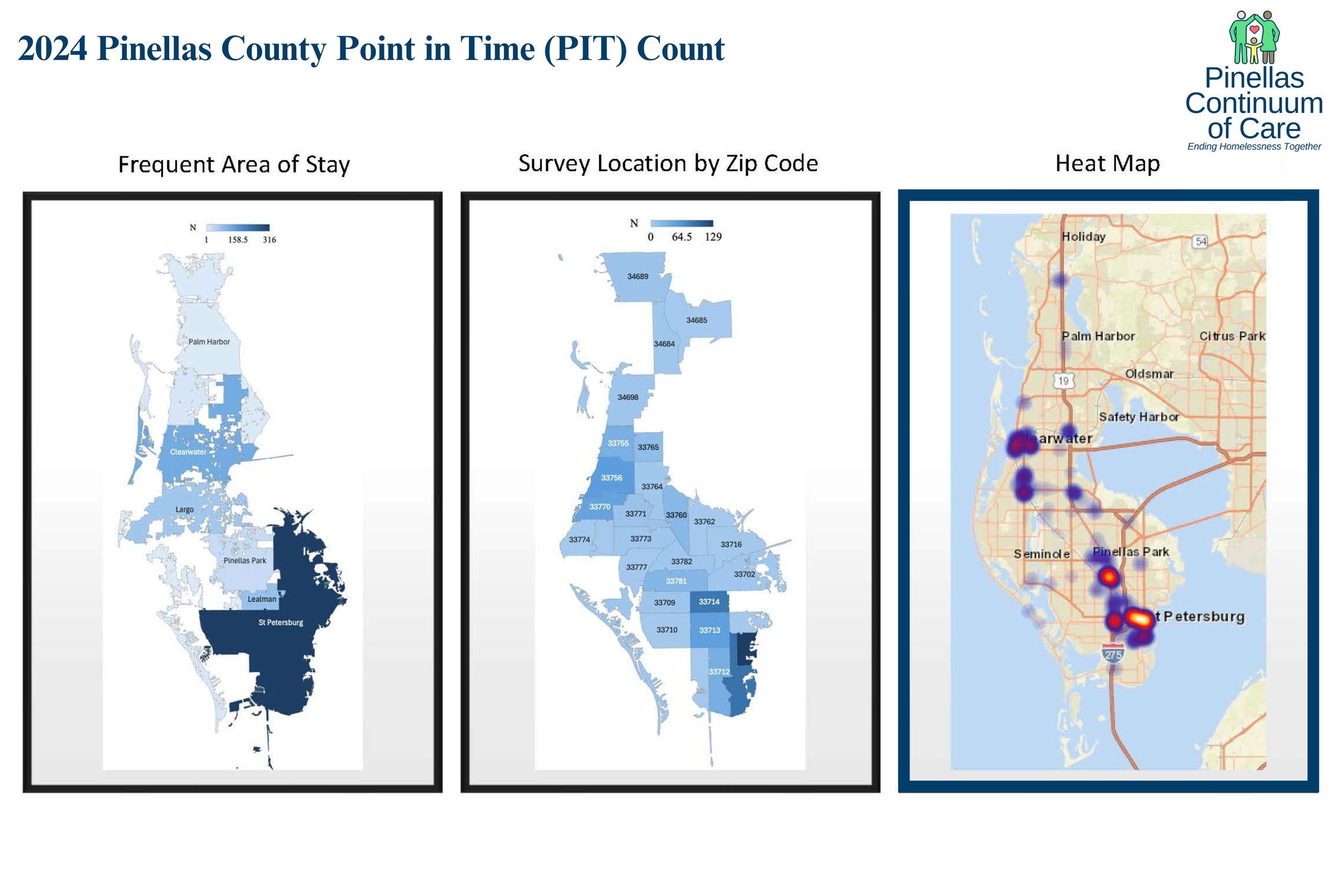
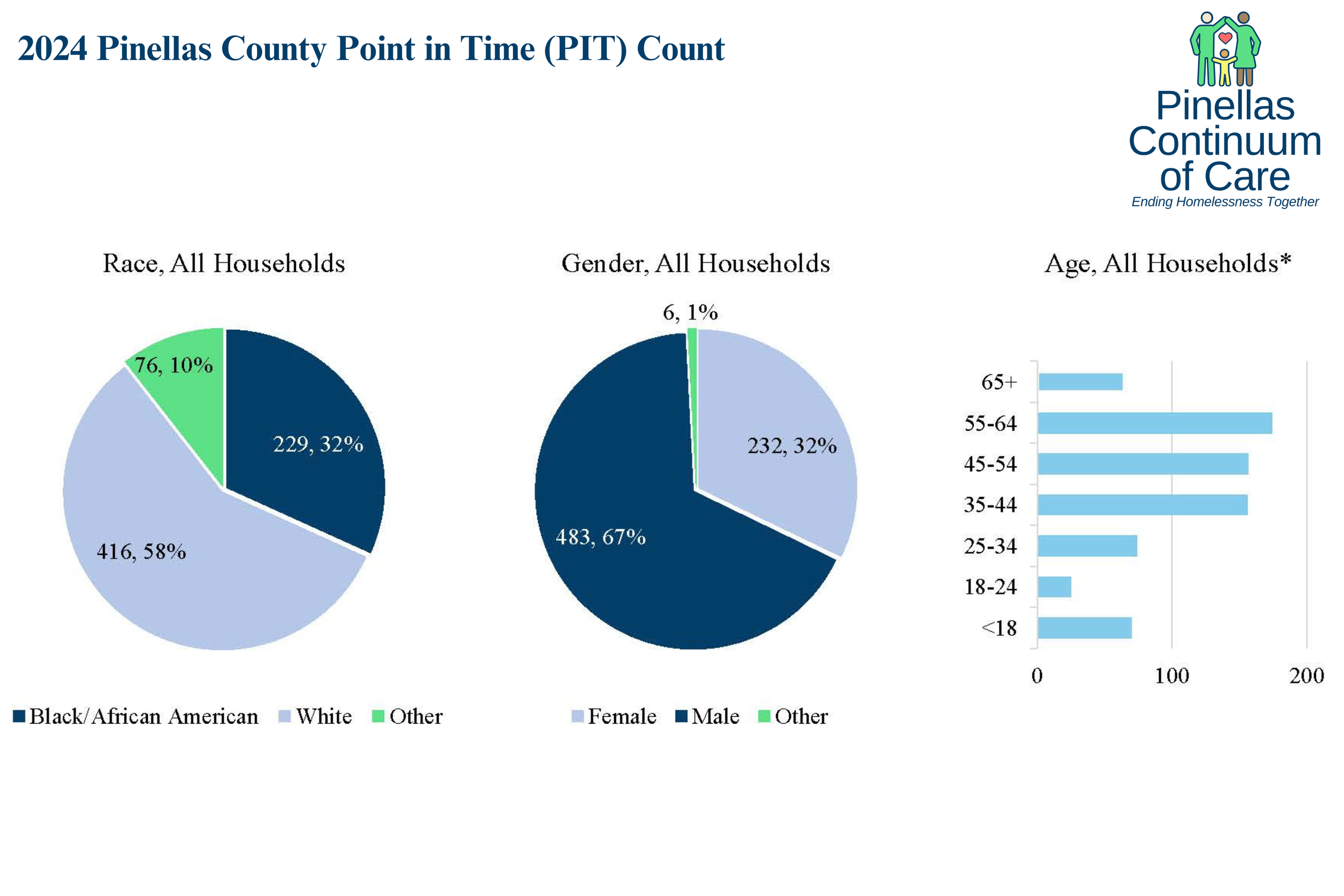
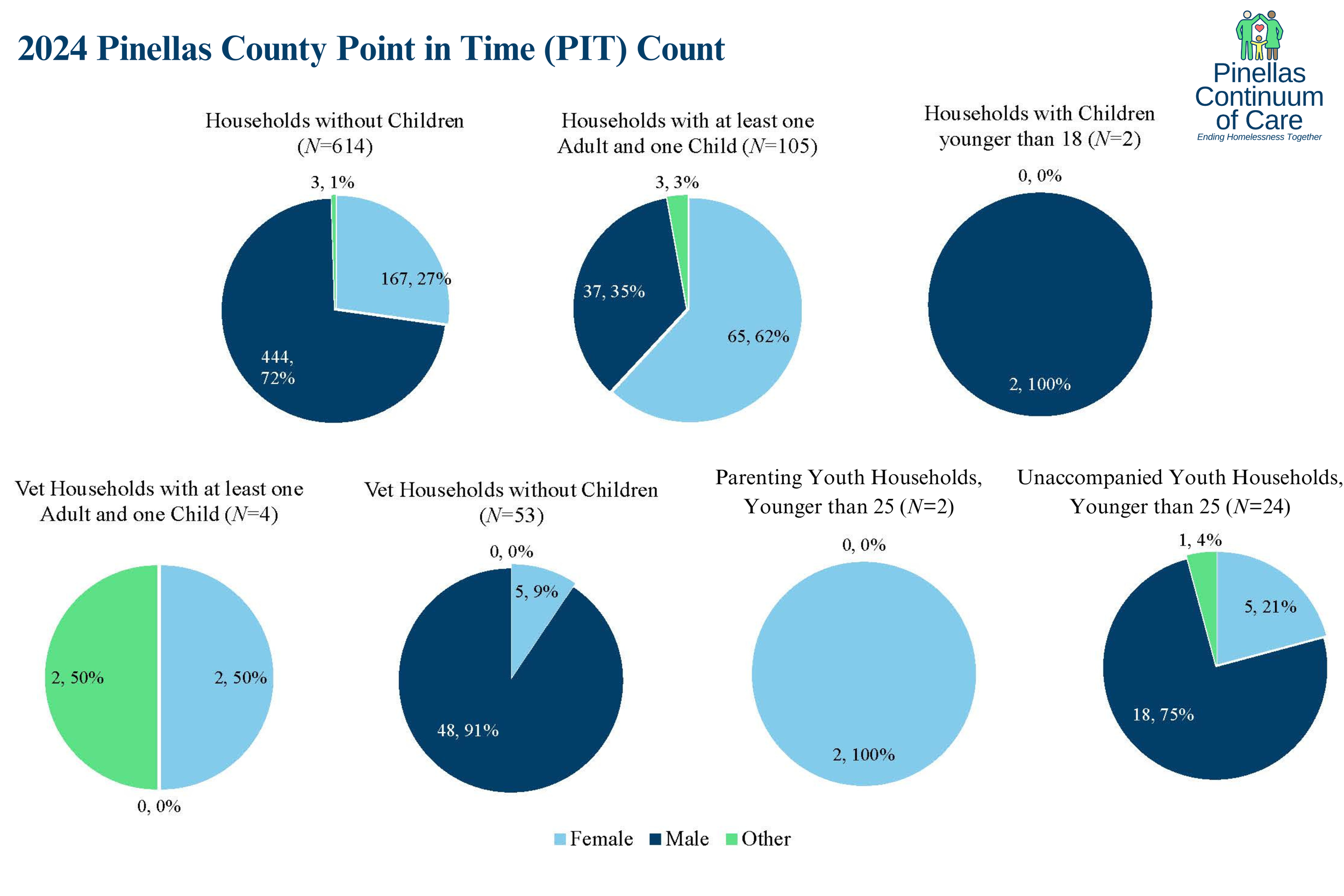
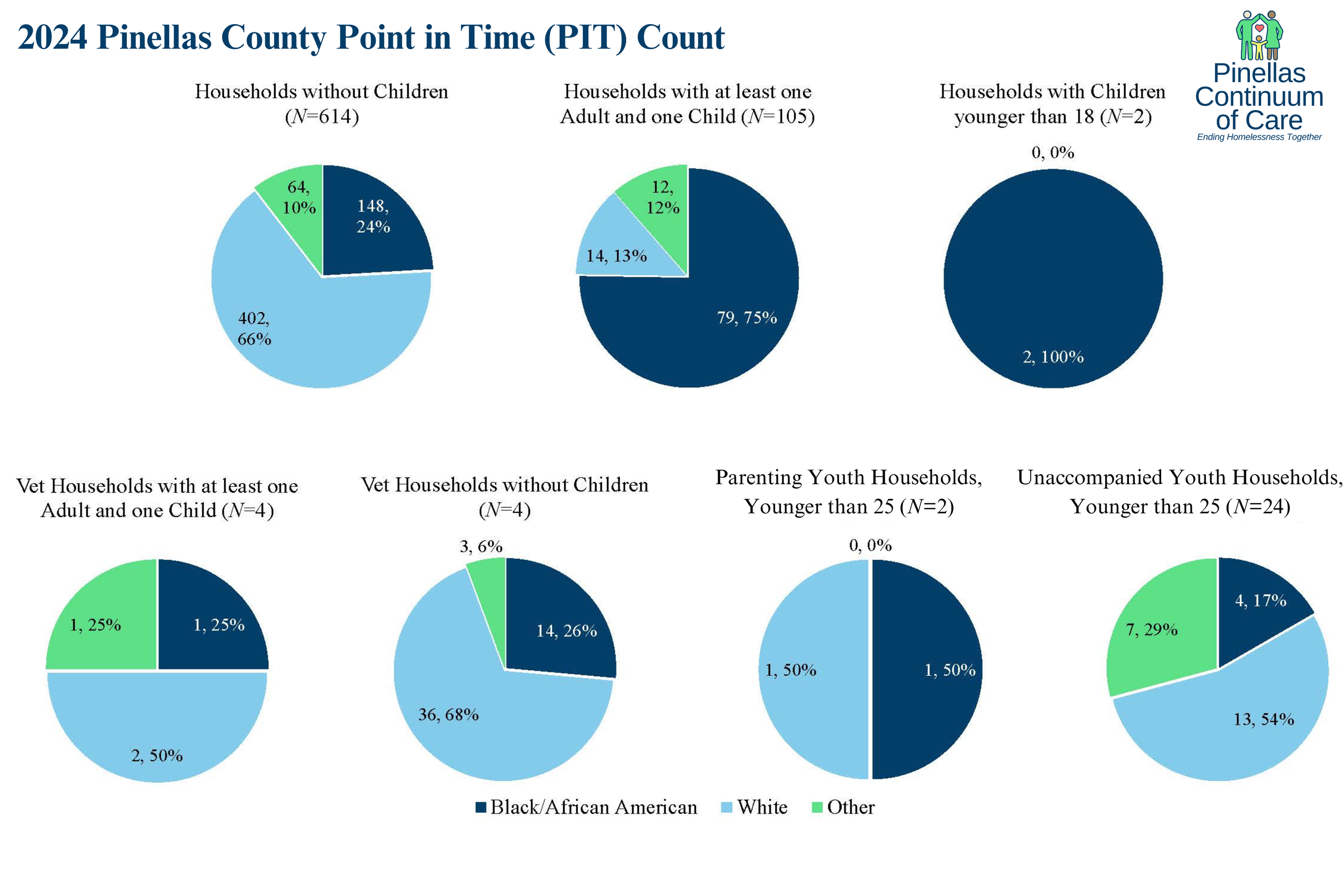
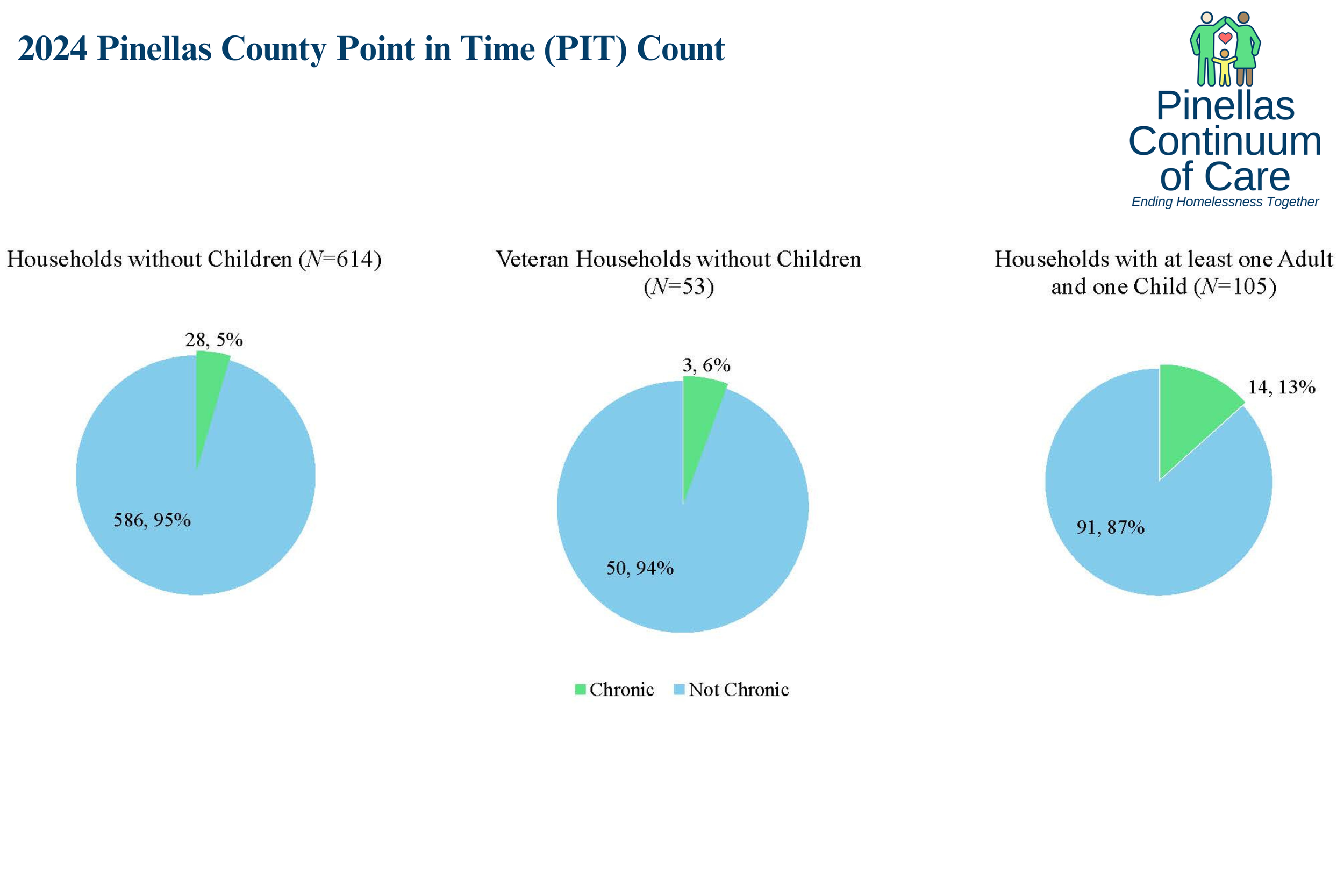
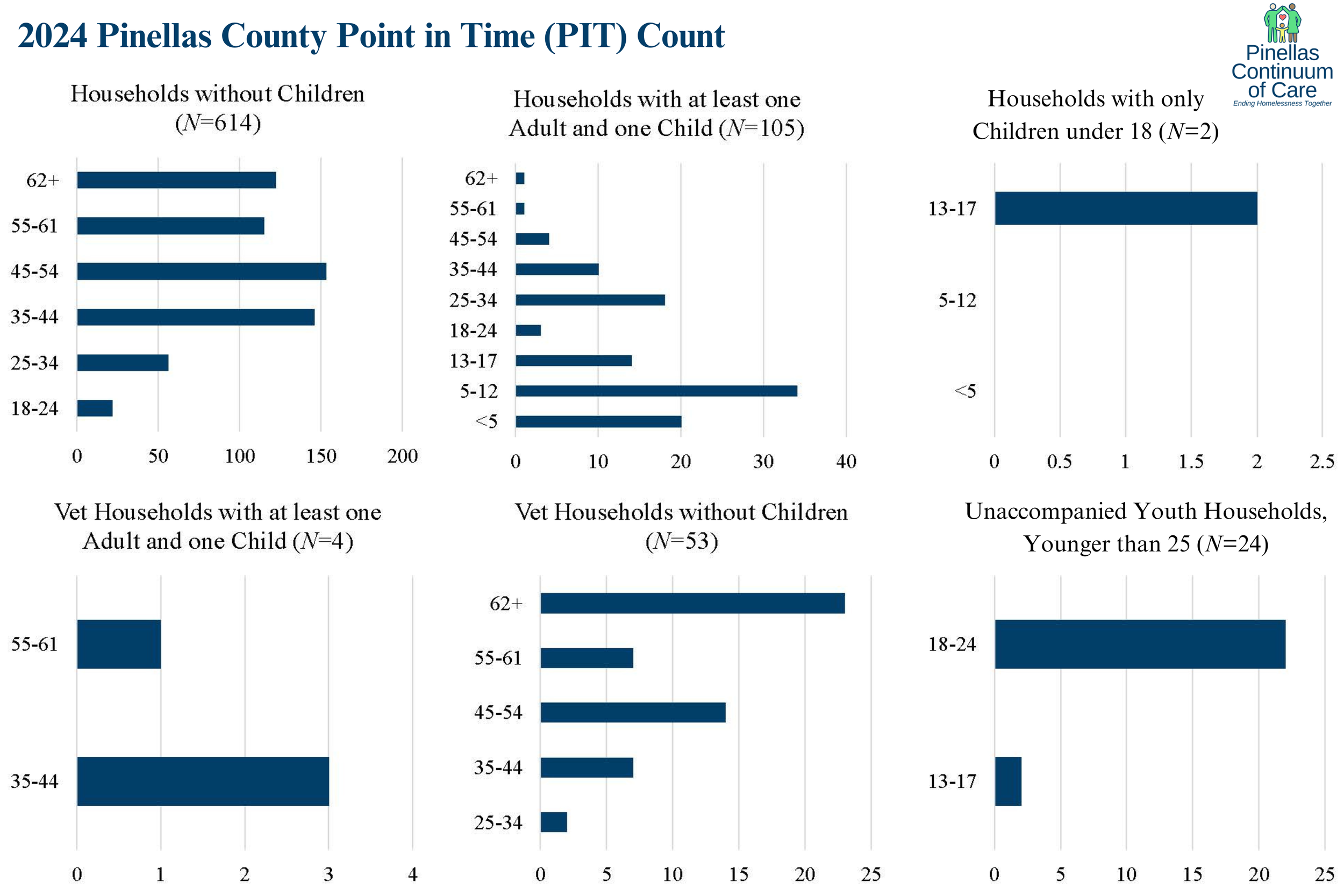
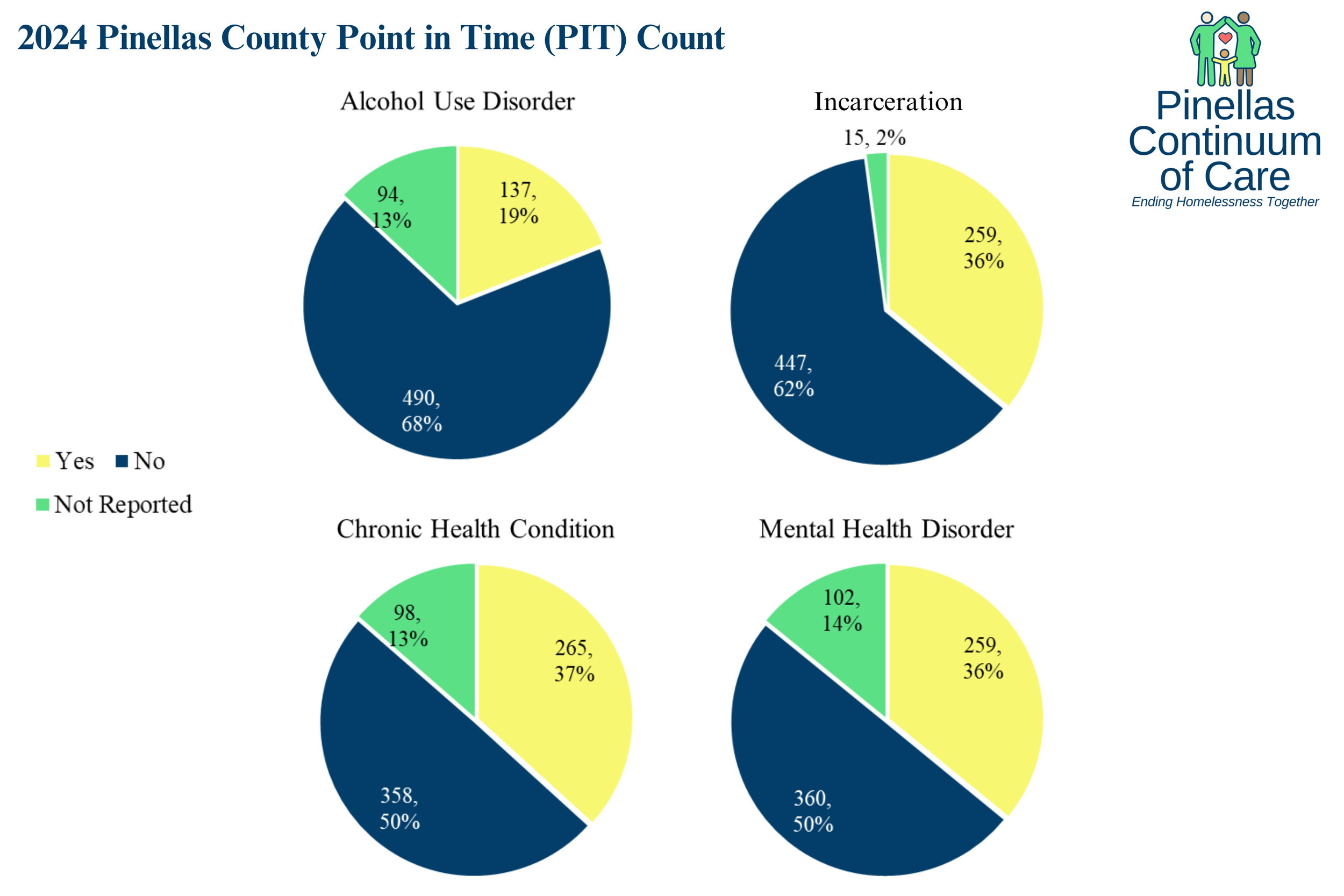
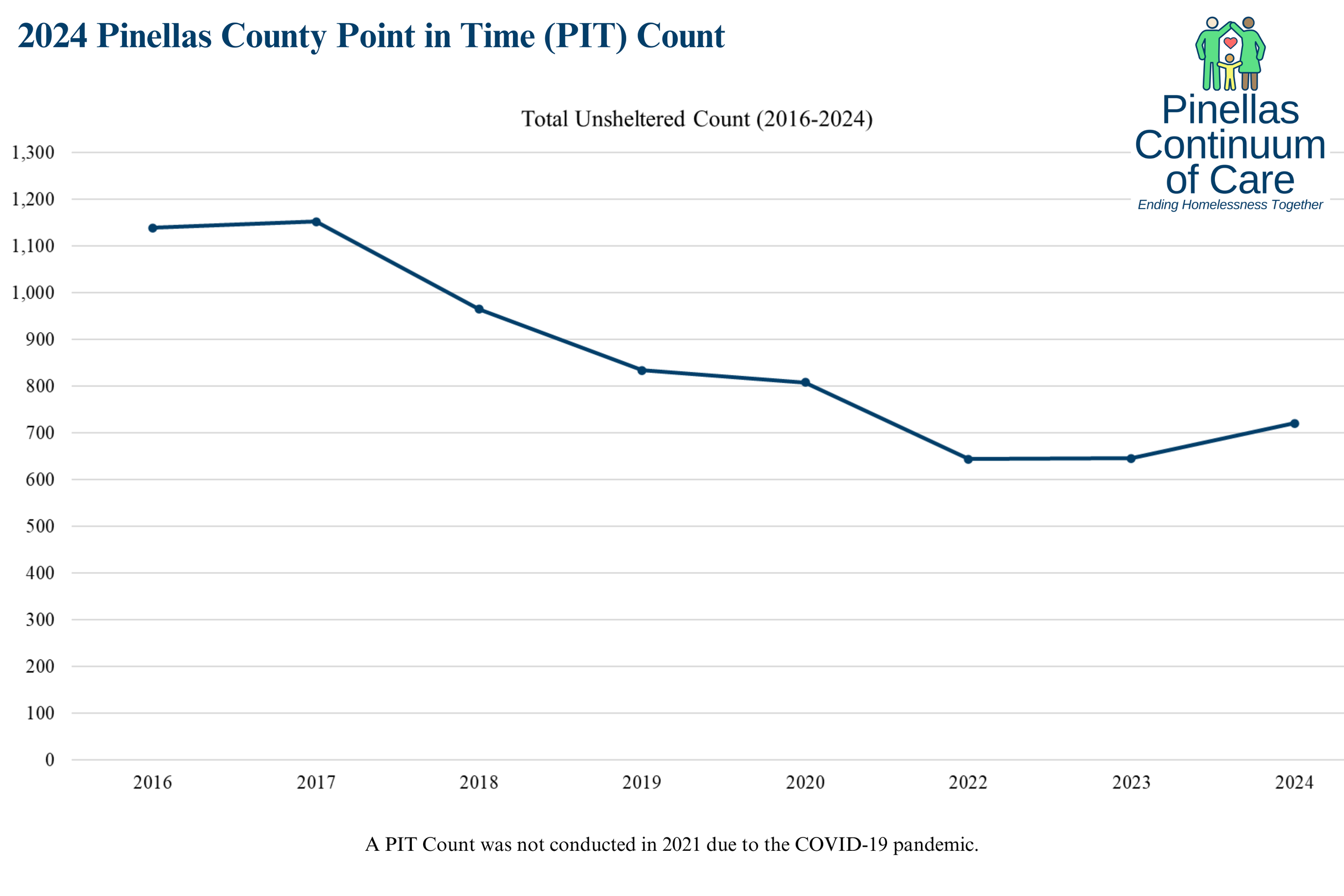
Sheltered Data:
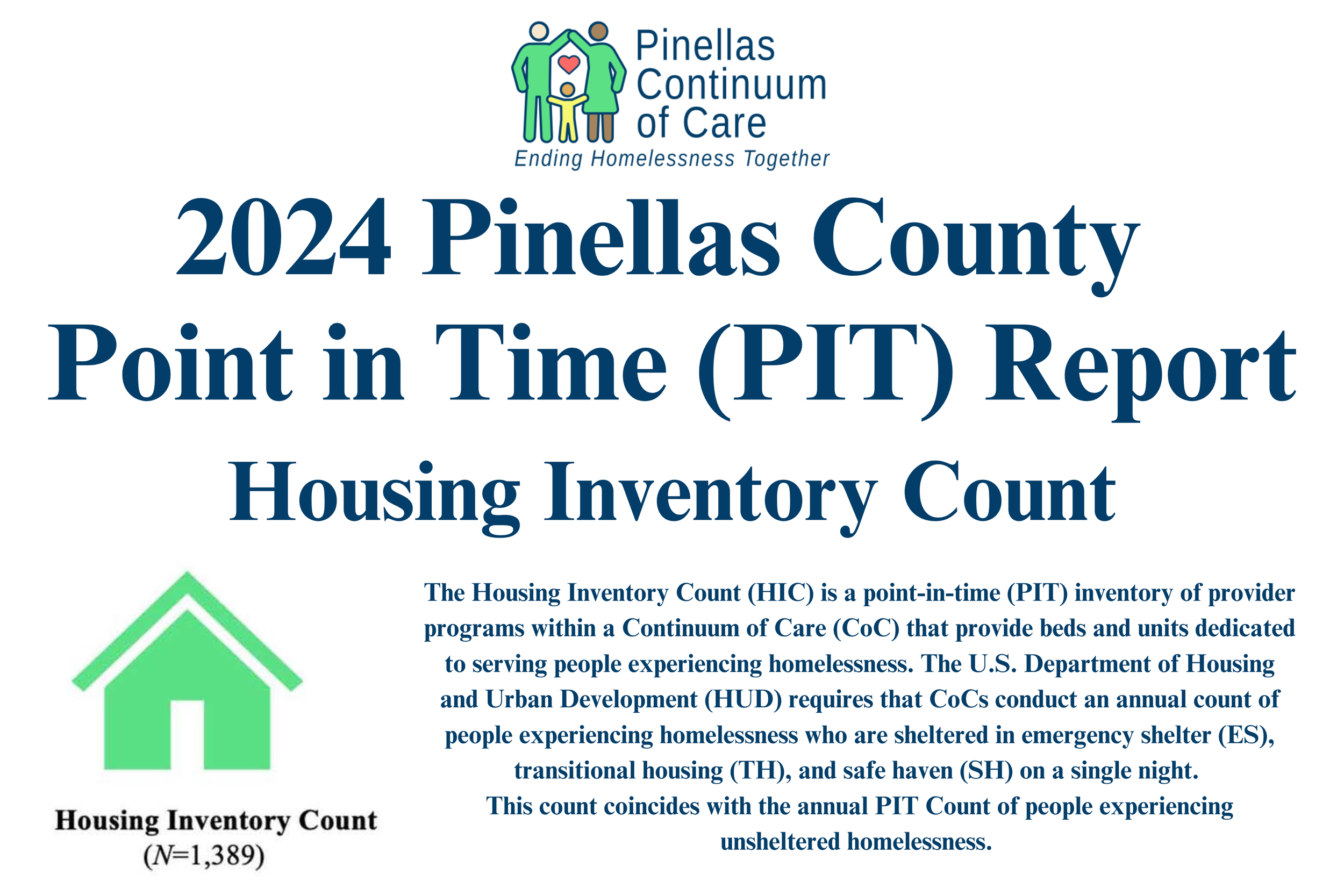
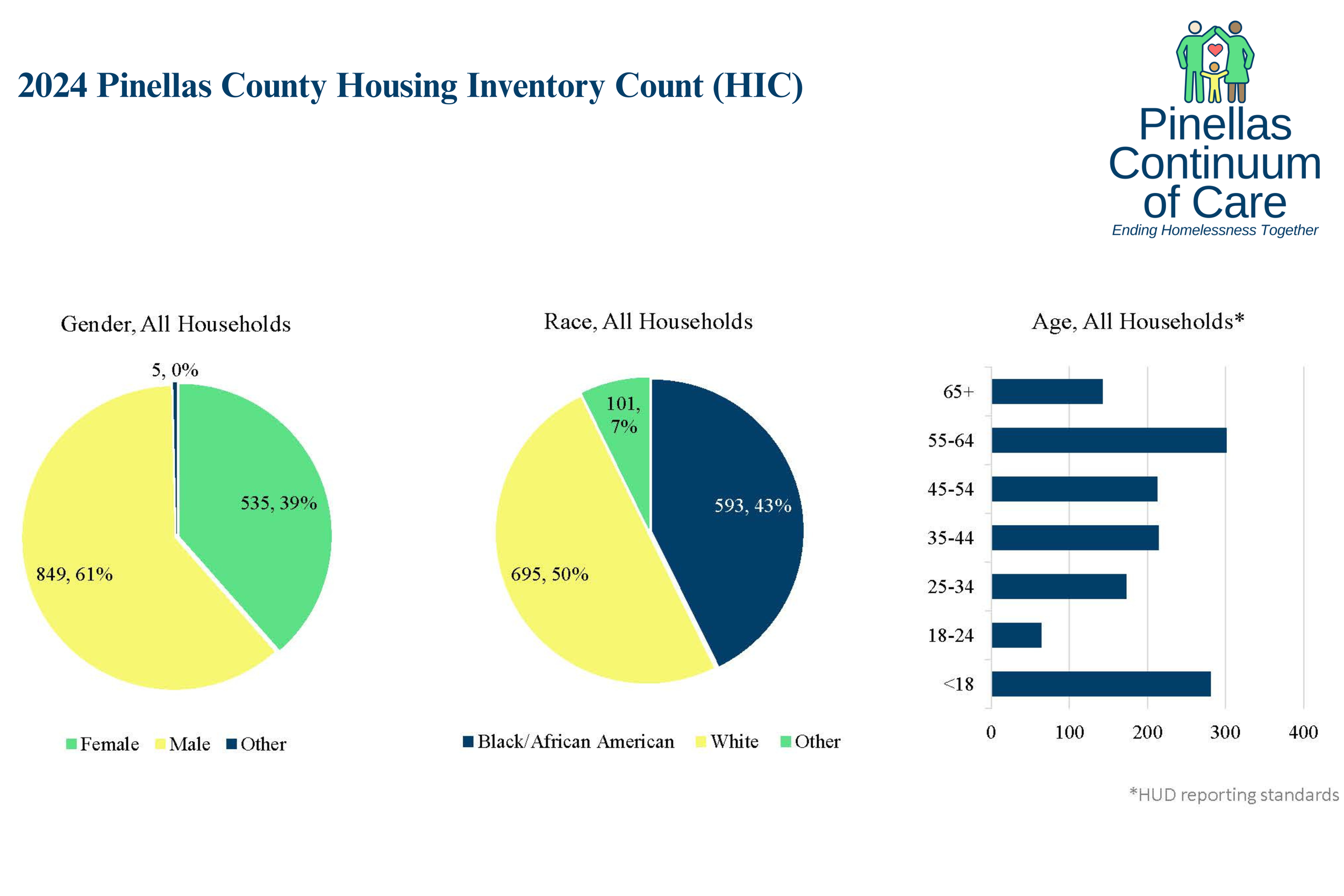
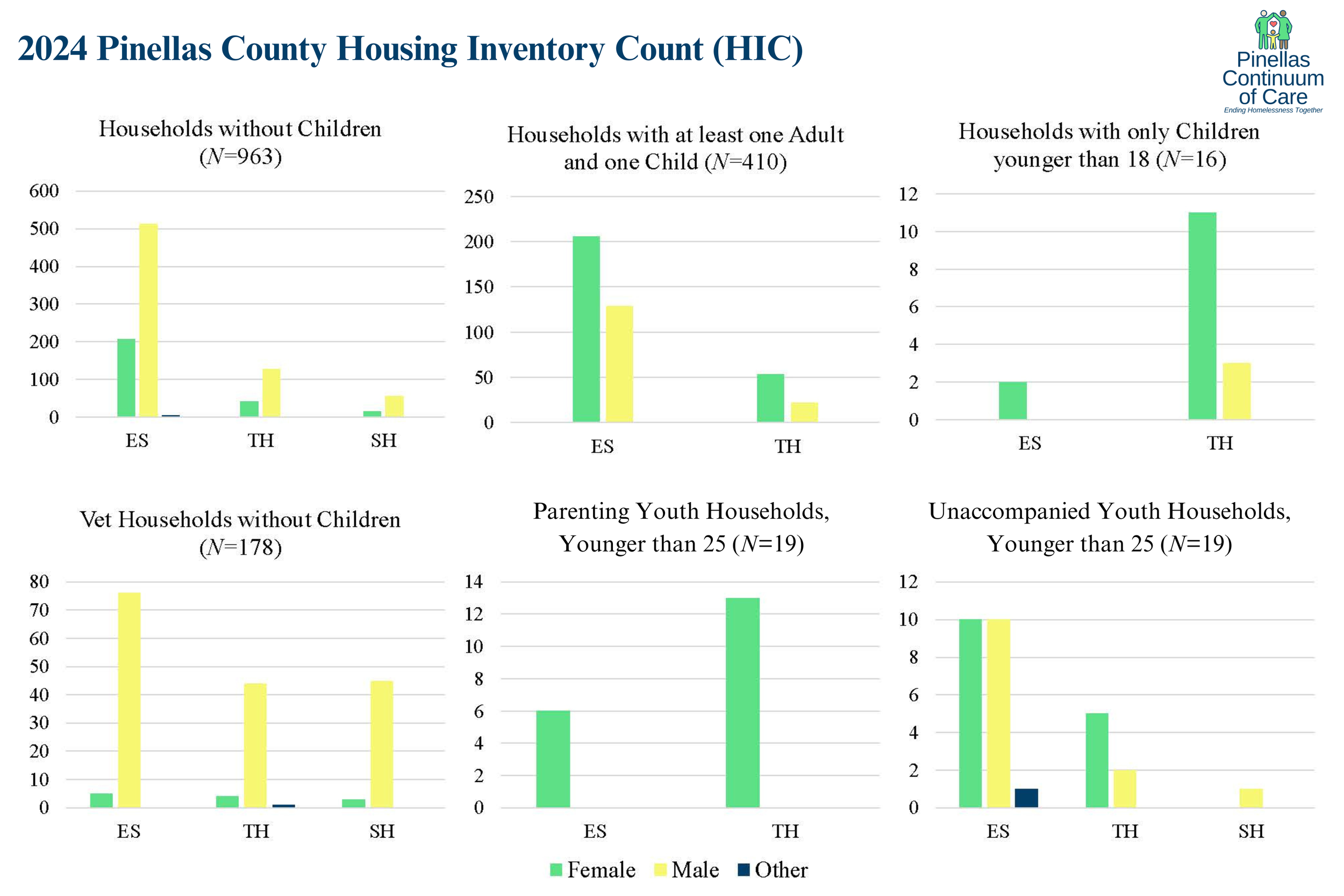
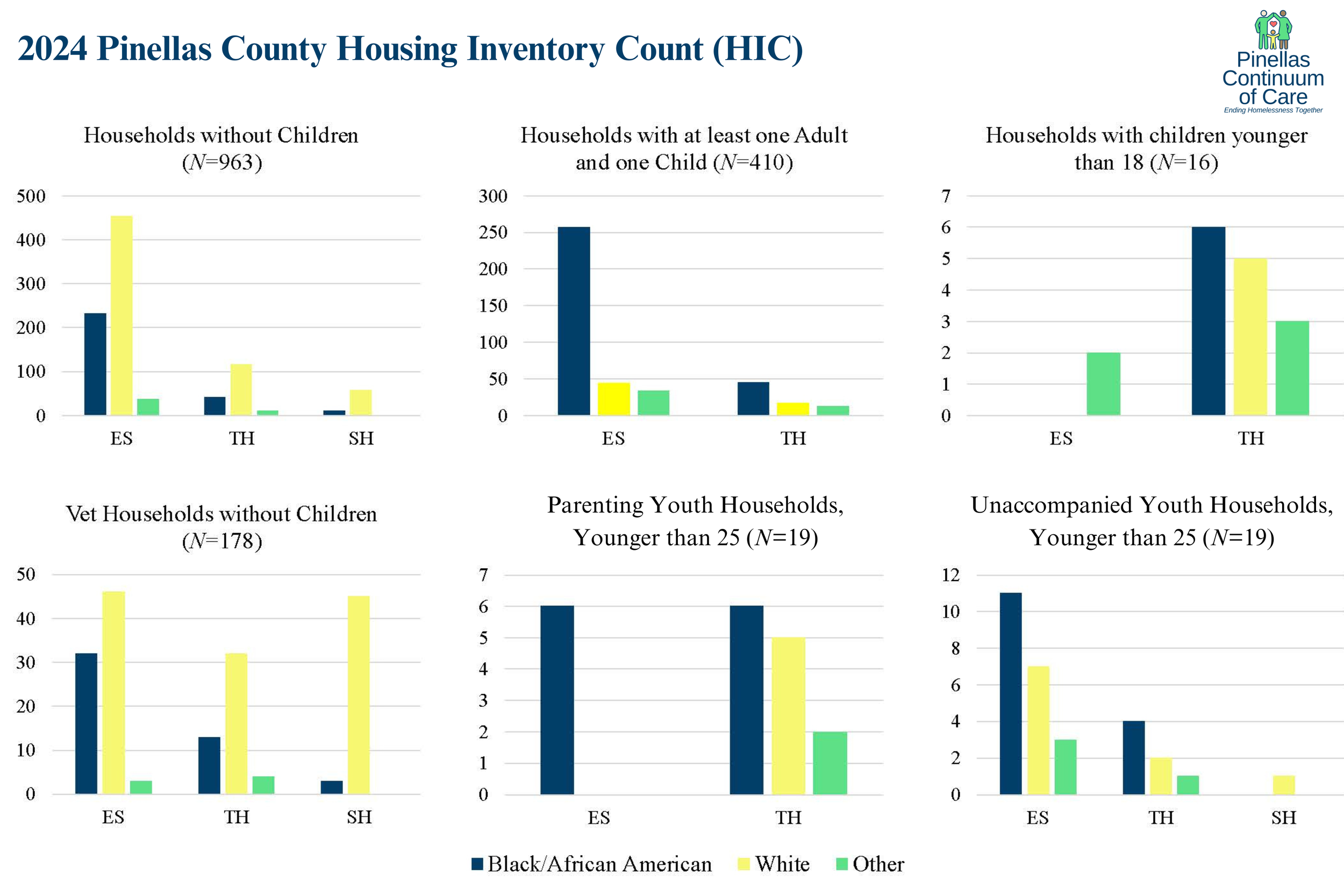
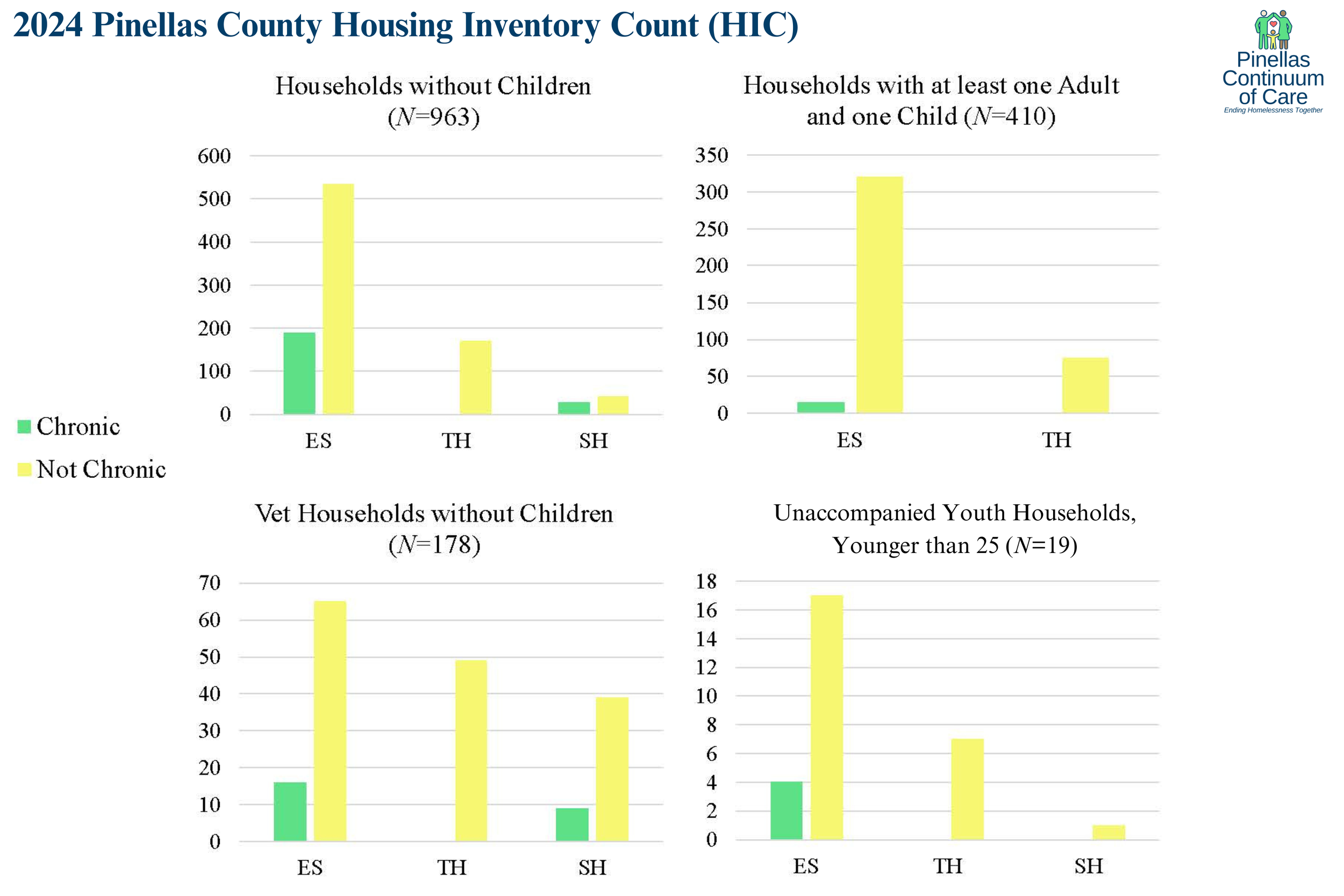
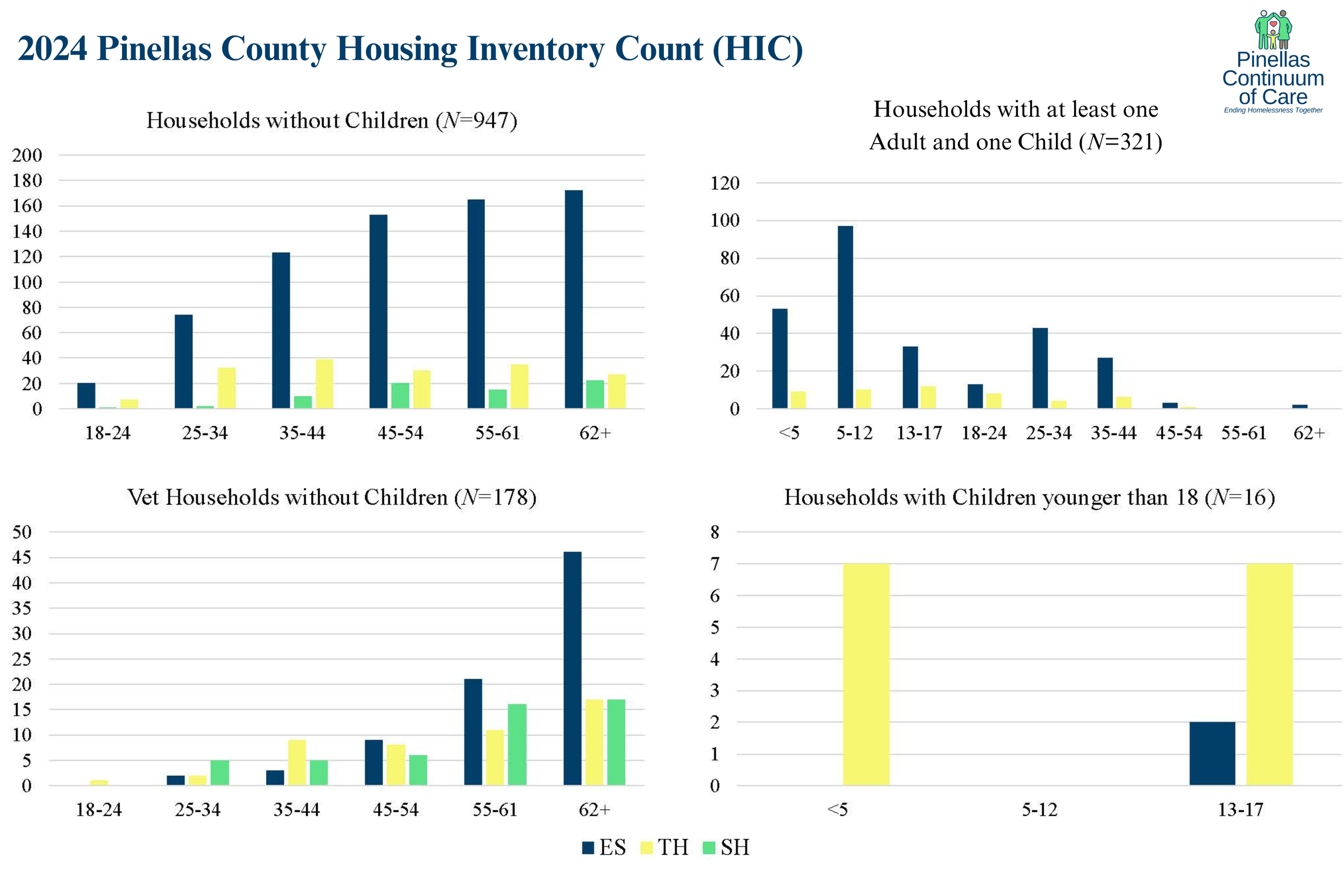
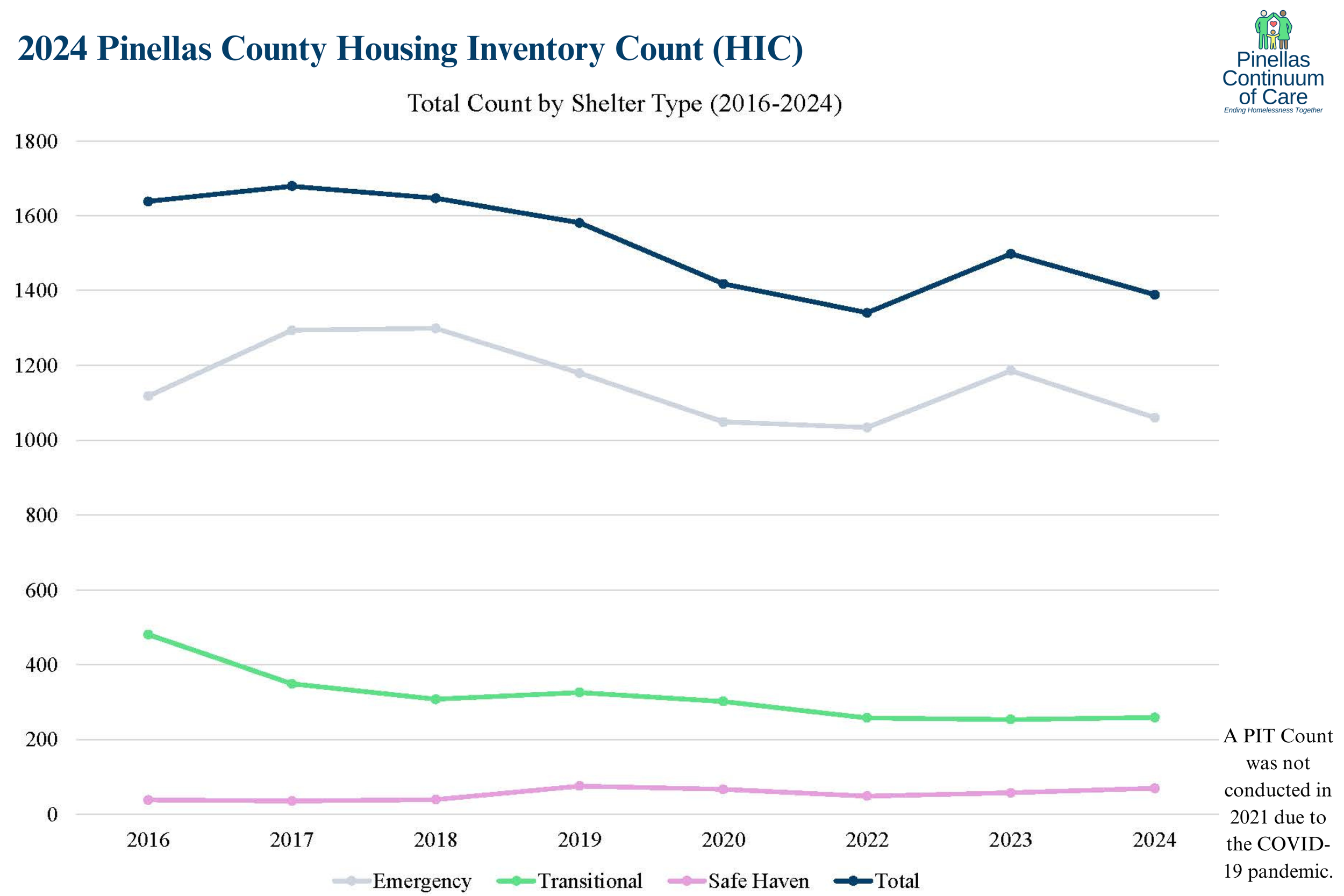
Sheltered and Unsheltered Comparison
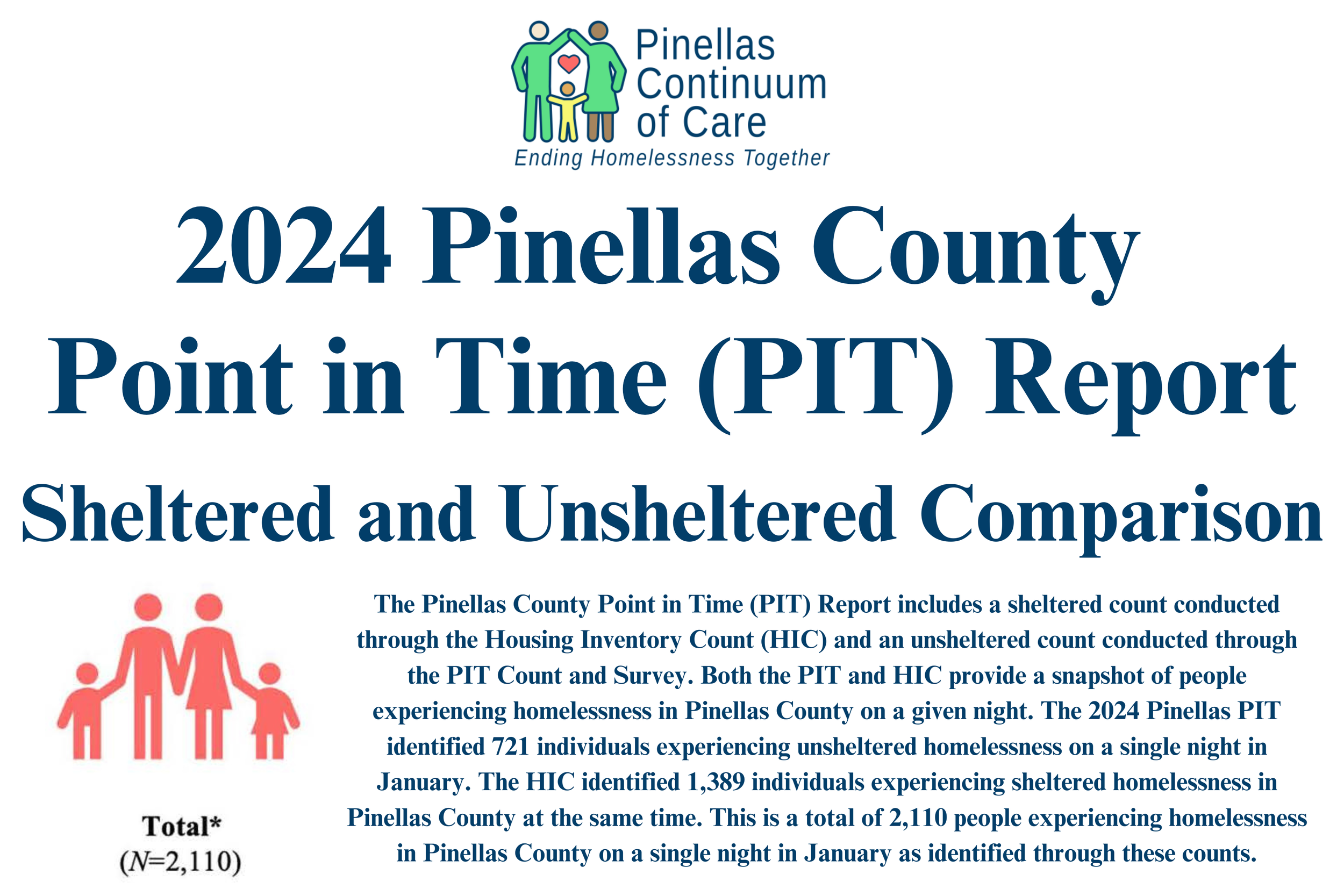
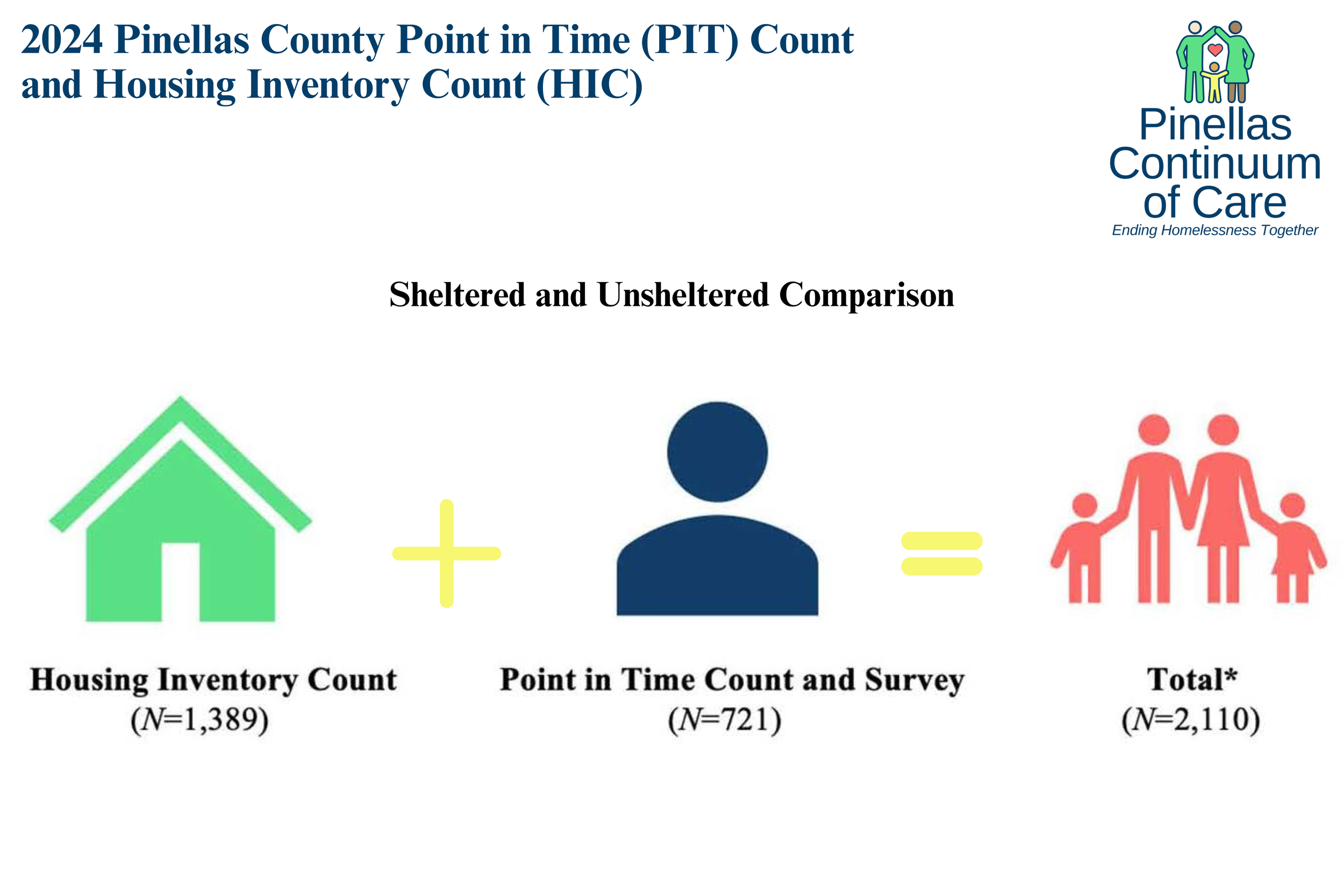
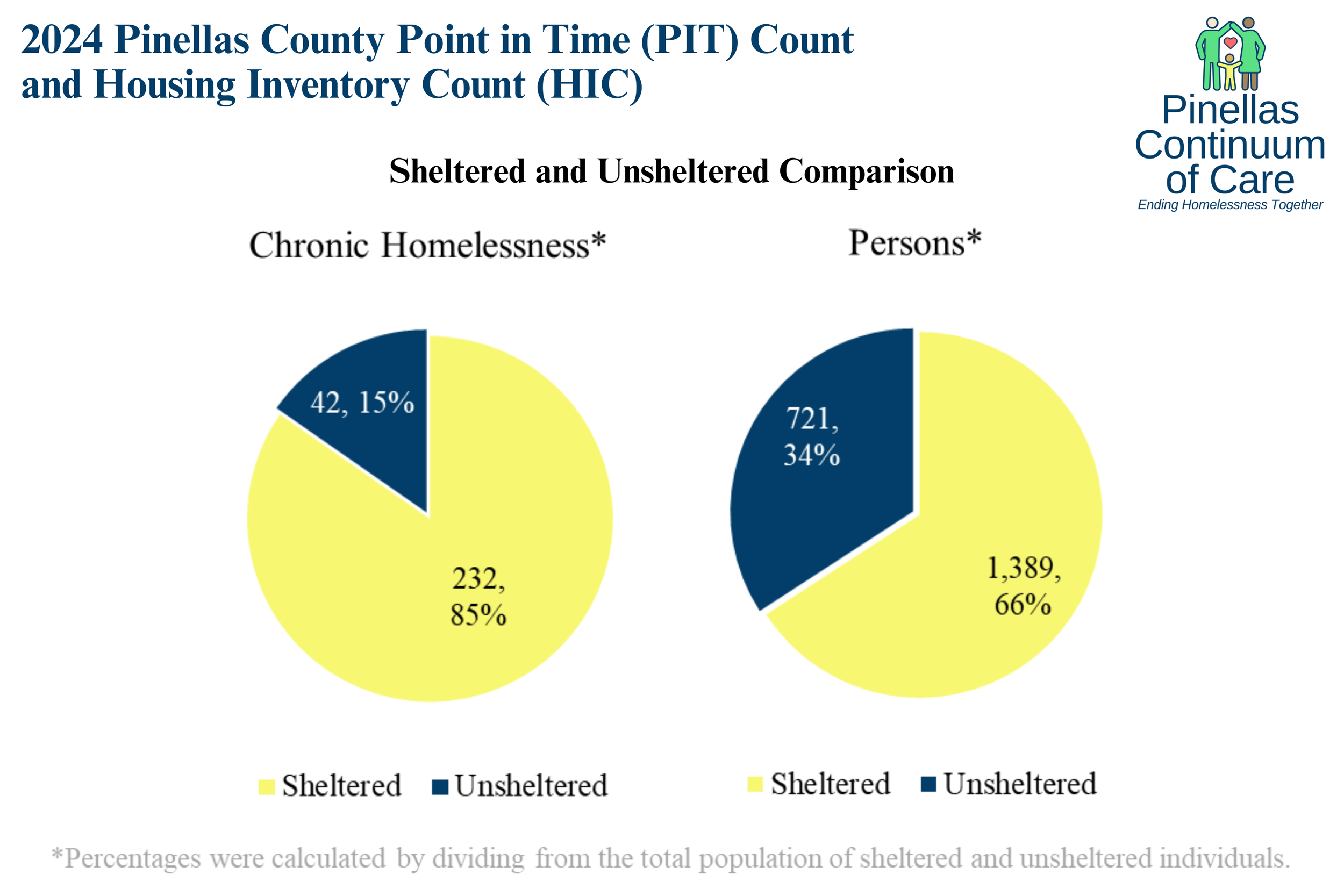
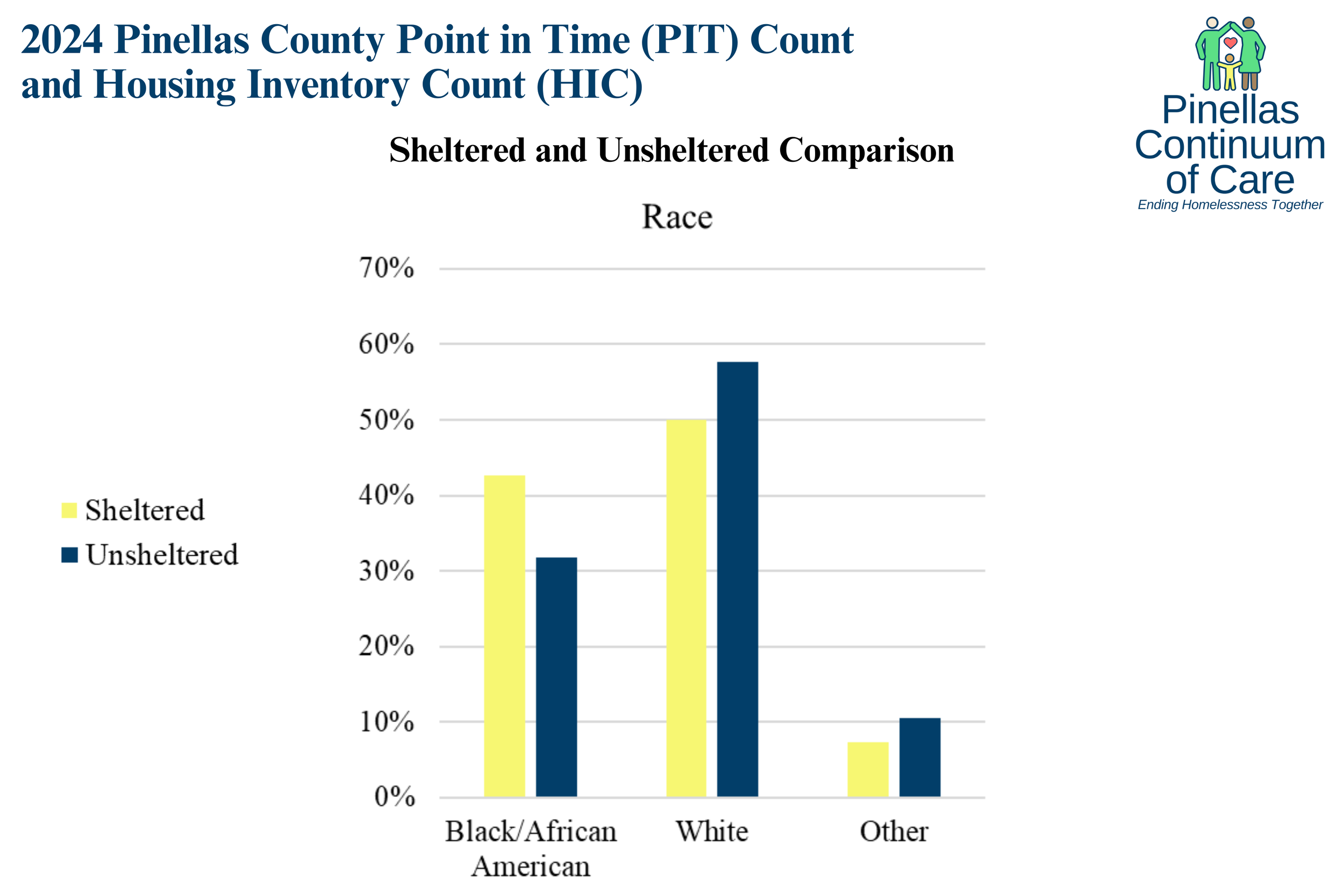
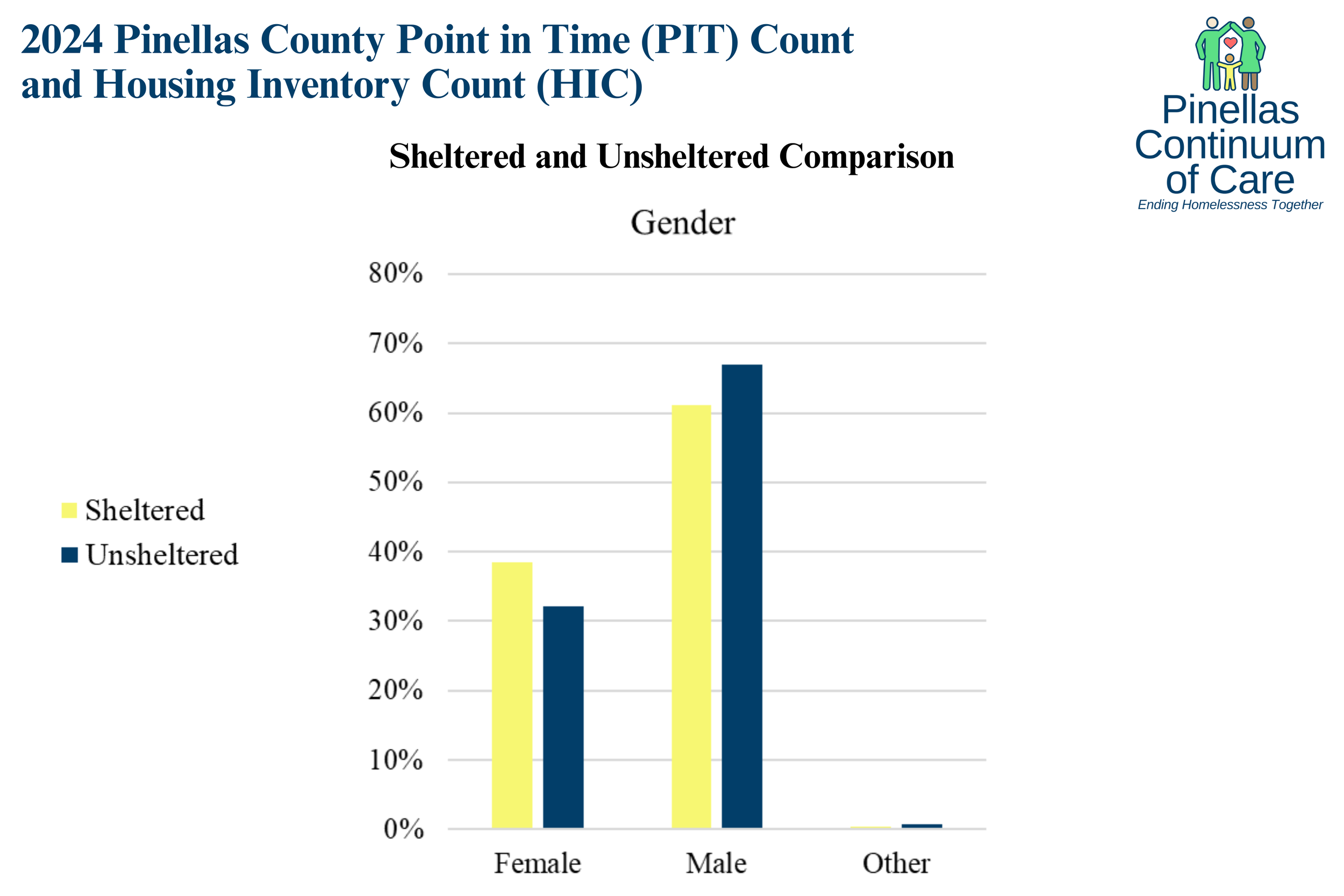
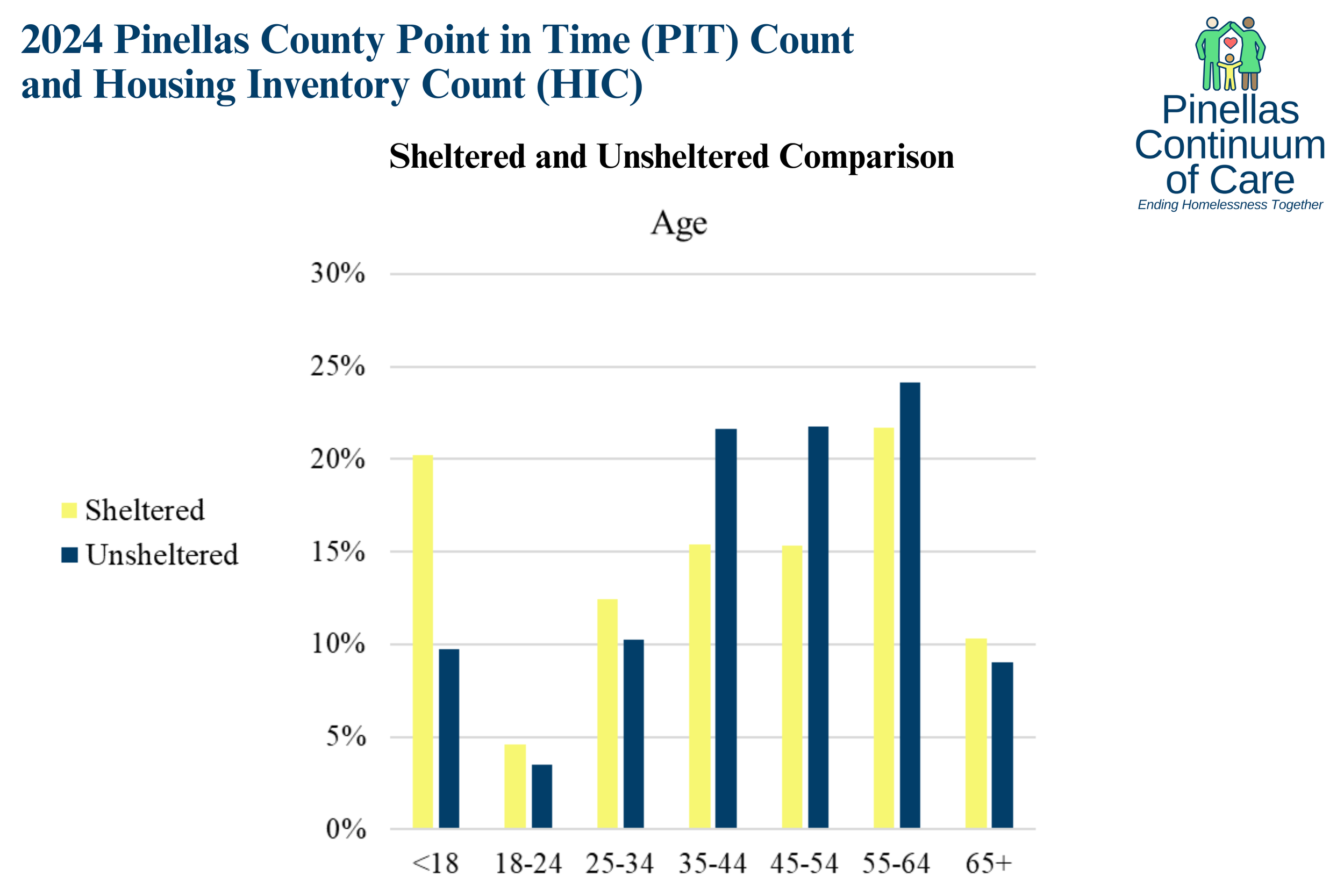
Pinellas County School Data:
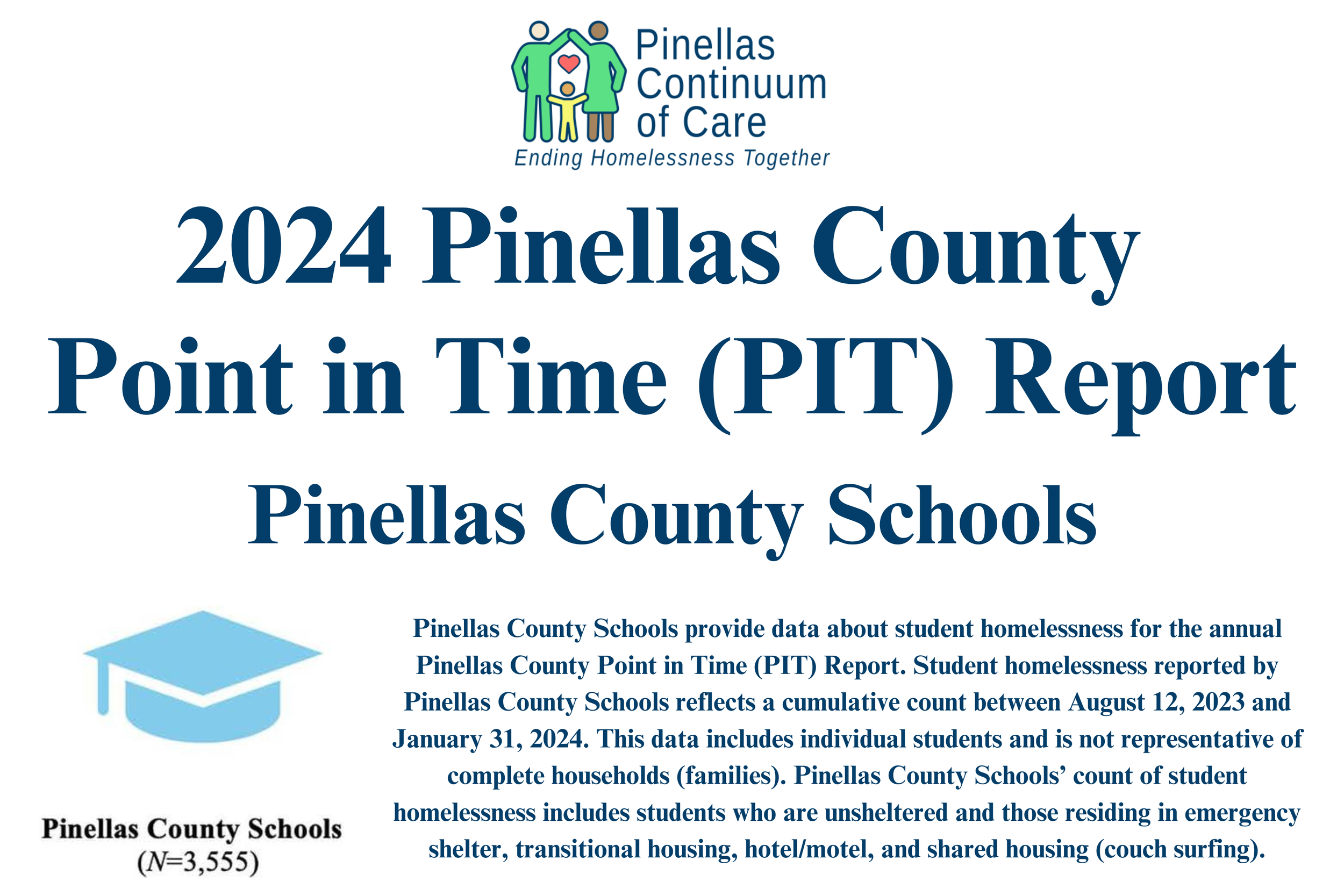


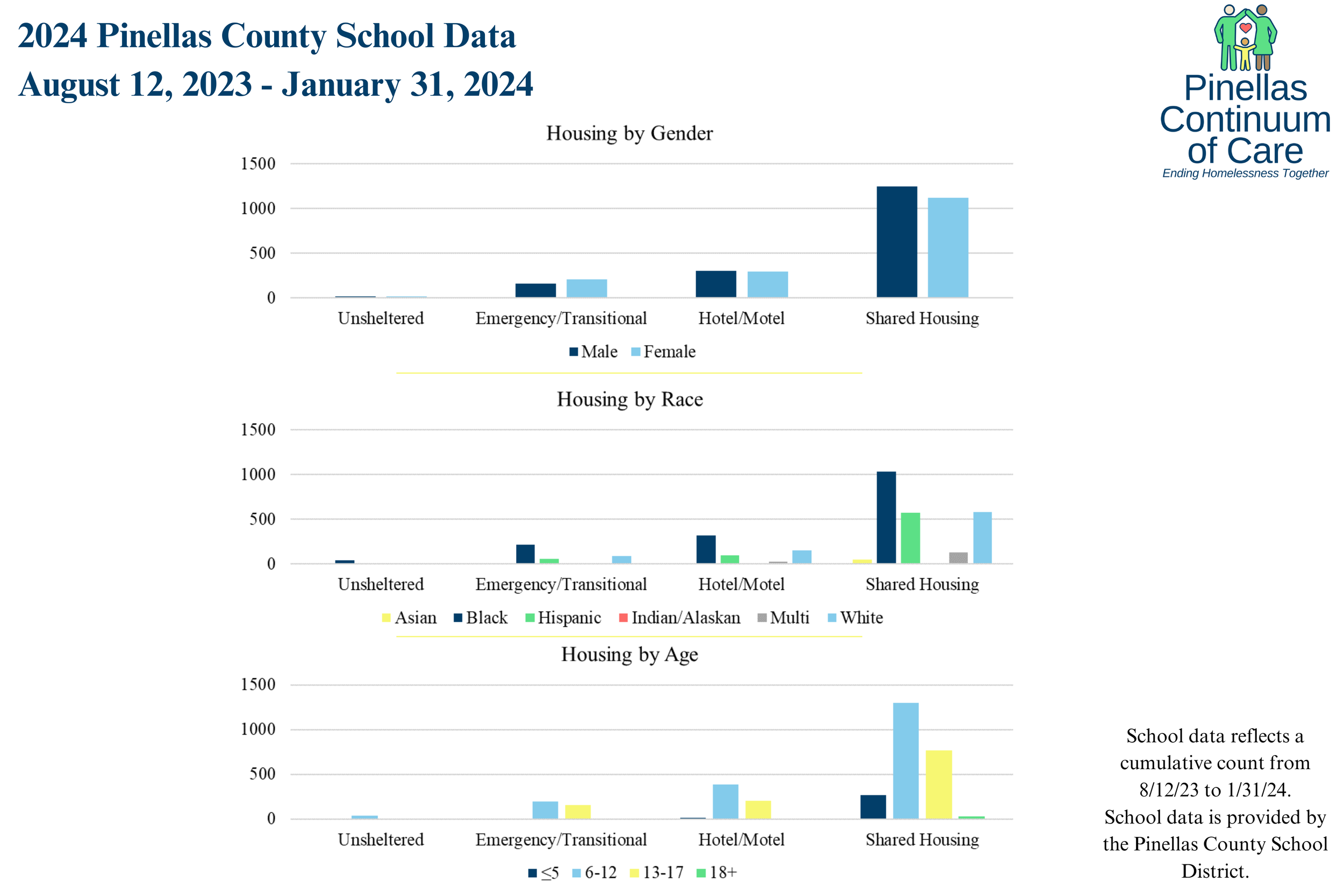
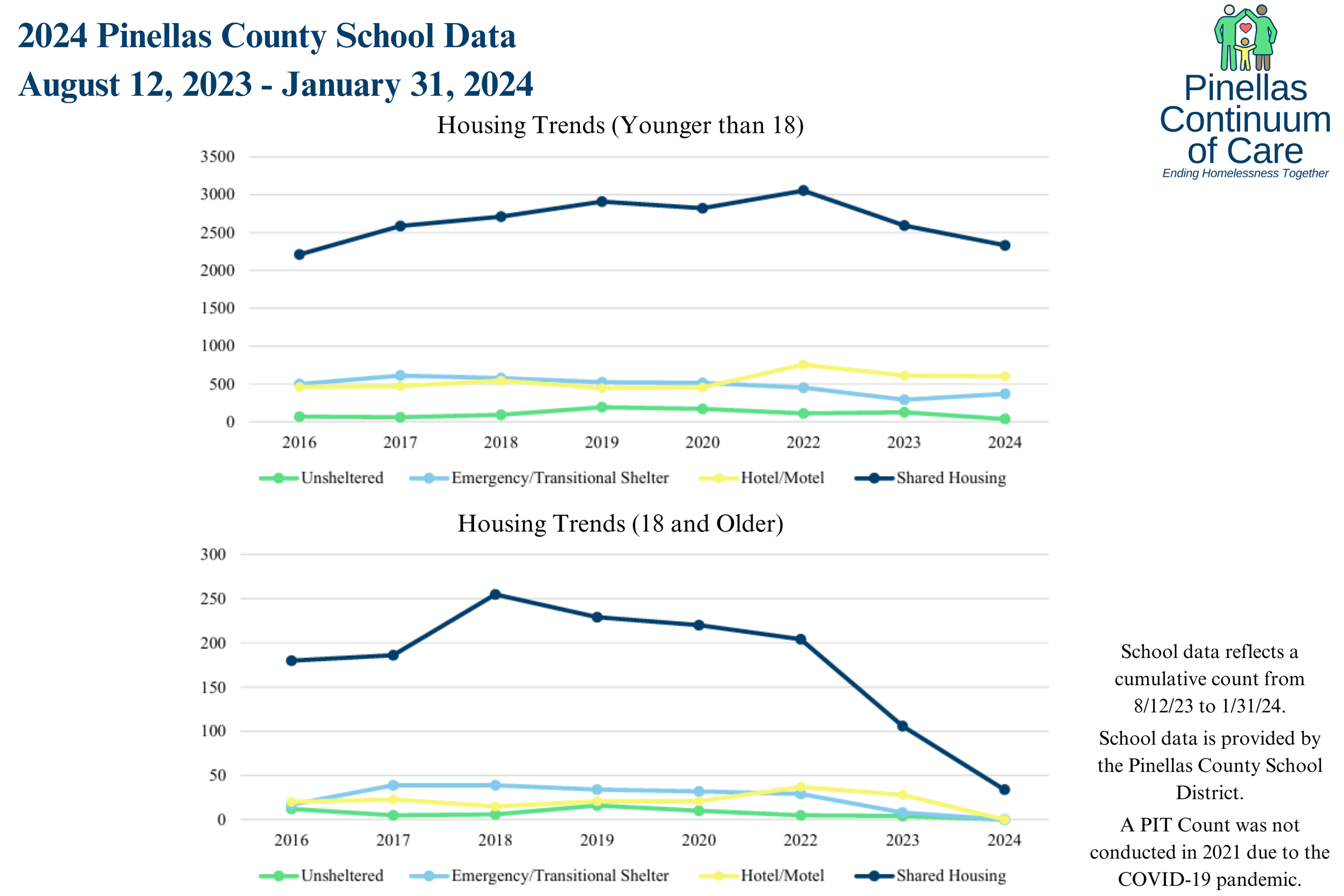
Pinellas County Jail Data:
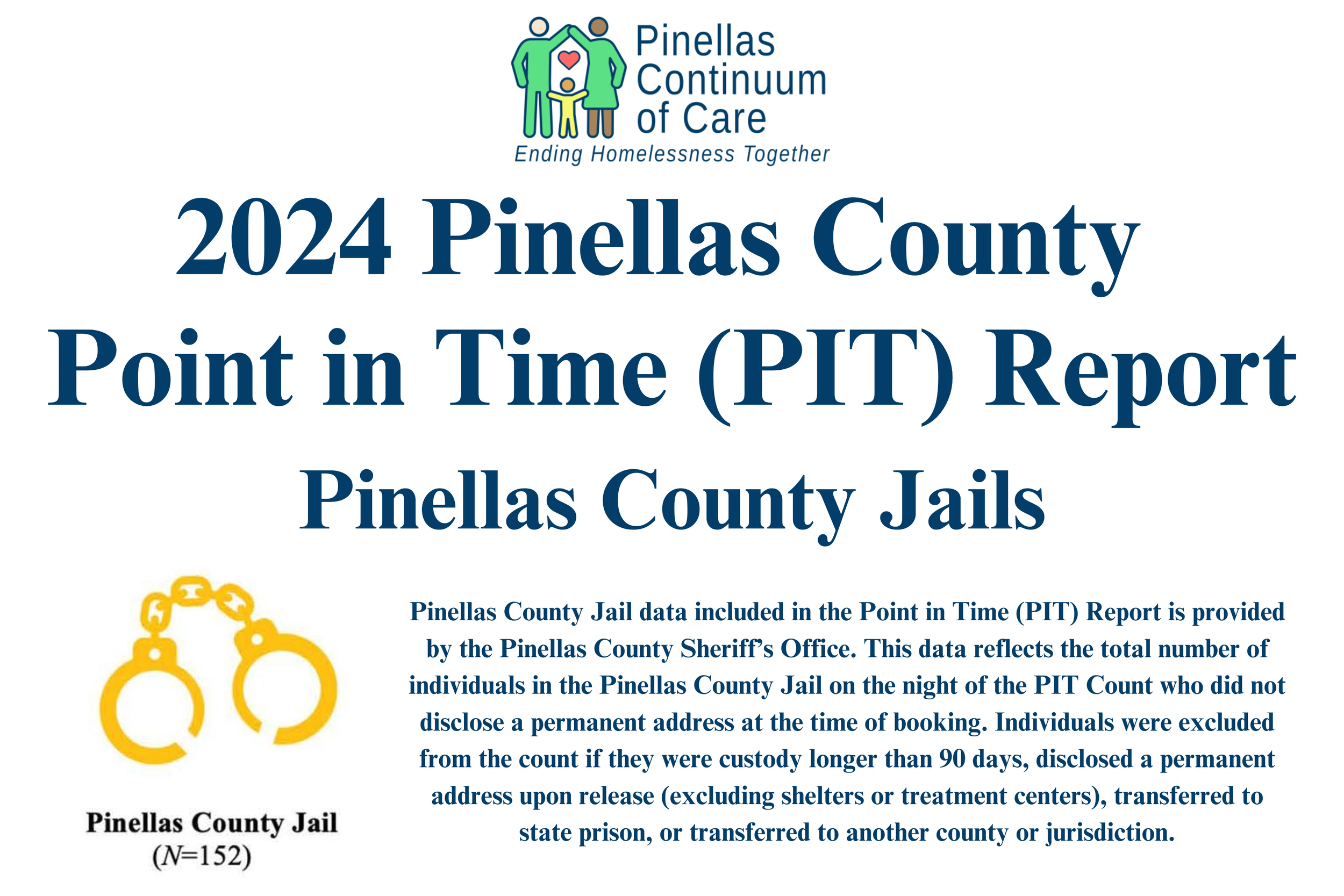

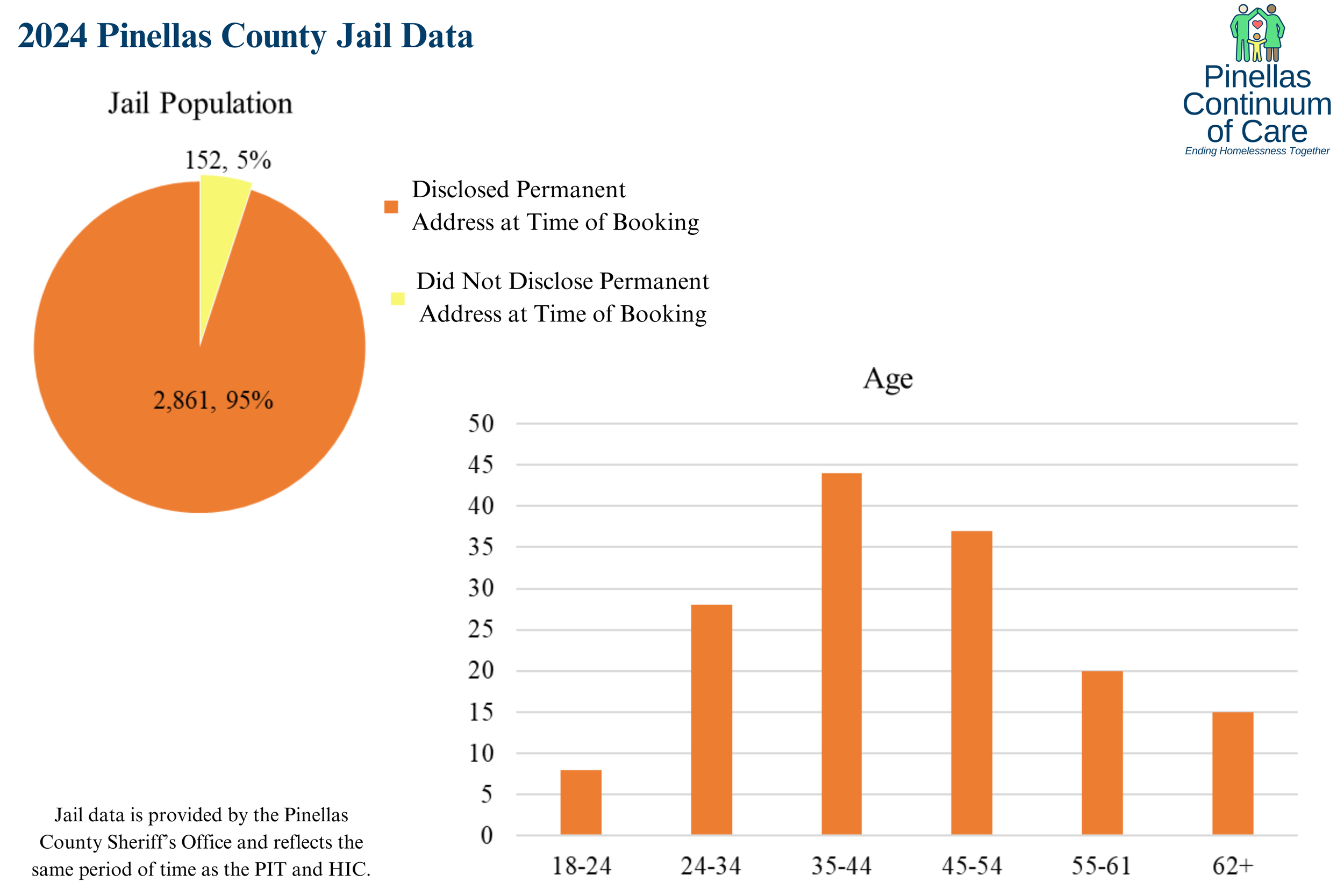
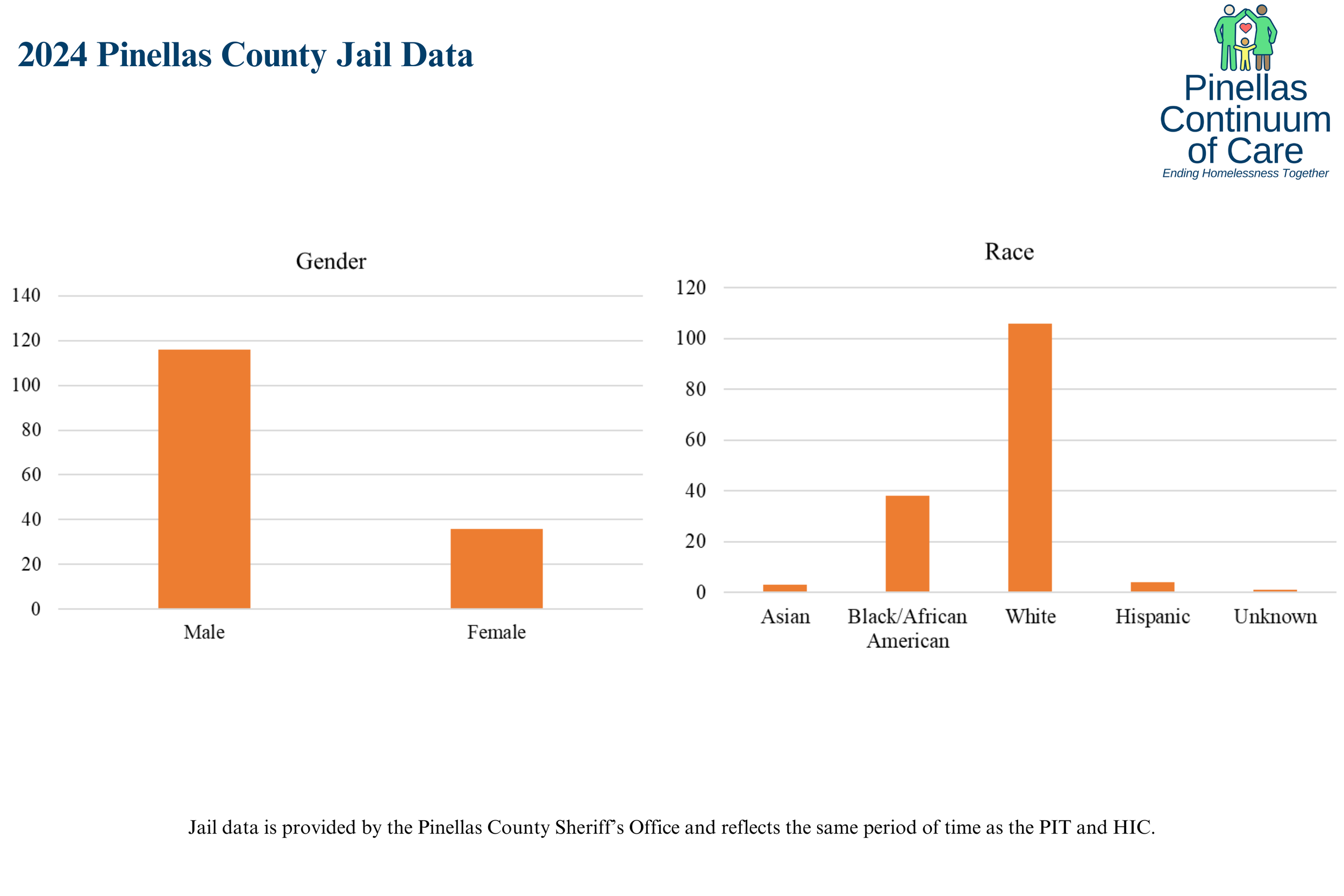
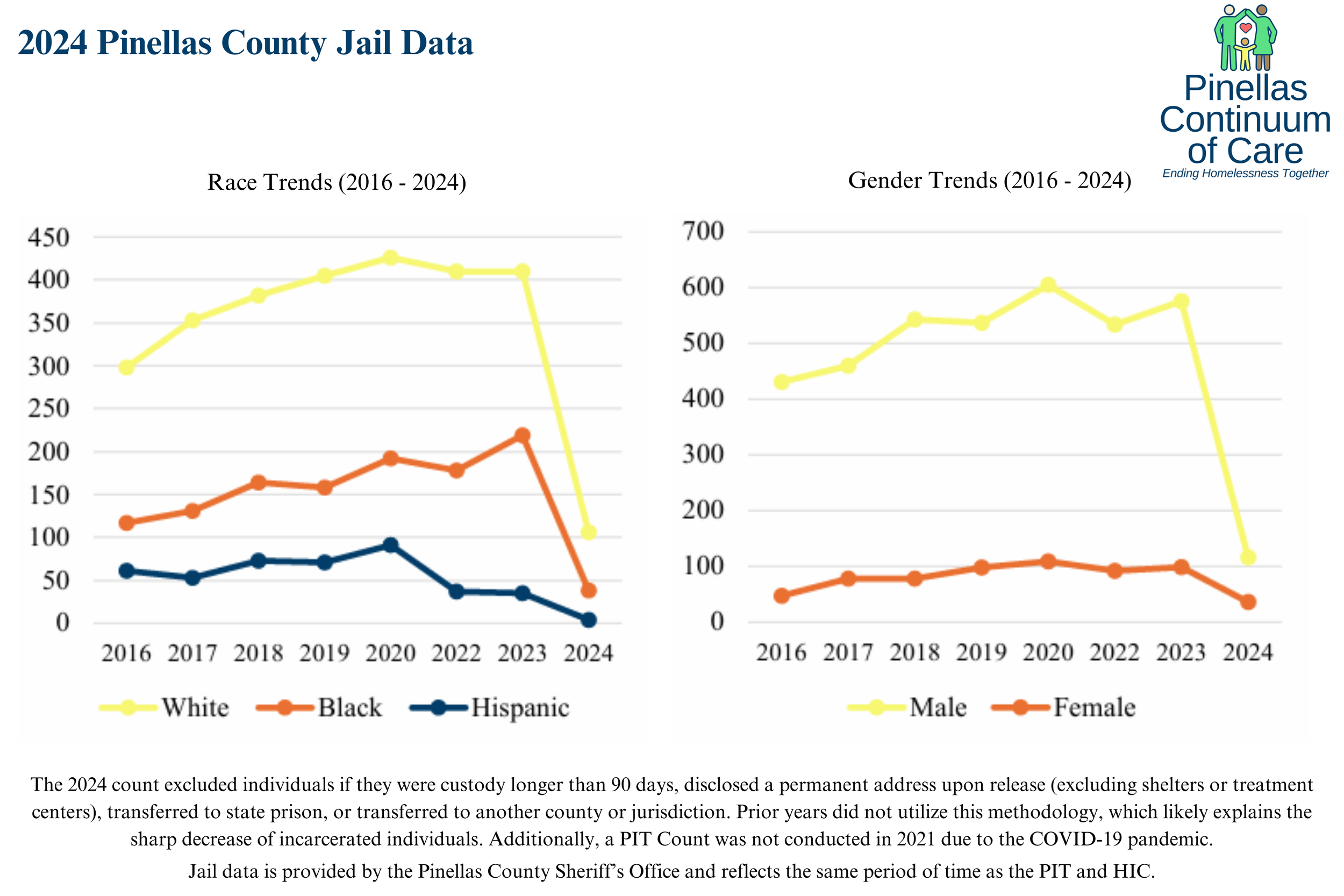
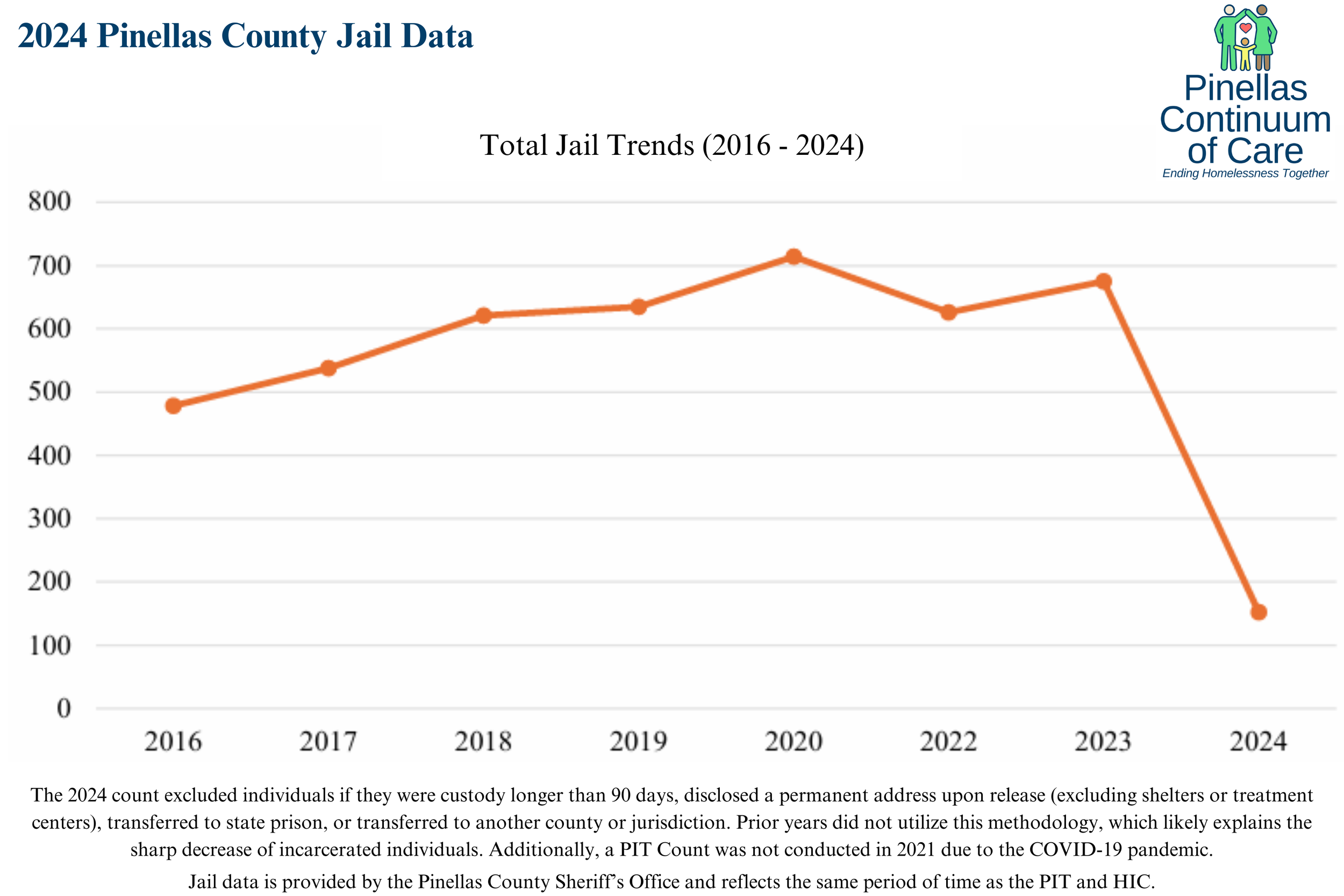
Key Terms
-
The Continuum of Care Program promotes community-wide commitment to the goal of ending homelessness; provides funding for efforts to quickly re-house homeless individuals and families to minimize trauma and dislocation; promotes access to and effective utilization of mainstream programs; and optimizes self-sufficiency among individuals and families experiencing homelessness.
Nature of Program: The Continuum of Care Program competitively awards grants for new construction, acquisition, rehabilitation, leasing, rental assistance, supportive services, and operating costs for housing units; homeless management information systems, project administration costs; and Continuum of Care planning and Unified Funding Agency costs.
The Homeless Leadership Alliance of Pinellas (HLA) is the lead agency in the Pinellas Continuum of Care.
The HLA also serves as the Collaborative Applicant. The Collaborative Applicant is the eligible applicant designated by the Continuum of Care (CoC) to collect and submit the CoC Registration, CoC Consolidated Application (which includes the CoC Application and CoC Priority Listing), and apply for CoC planning funds on behalf of the CoC during the CoC Program Competition. The CoC may assign additional responsibilities to the Collaborative Applicant so long as these responsibilities are documented in the CoC's governance charter.
-
Couch Surfing: Individuals and families staying with hosts - such as friends and family; also known as “doubling up”
Literal Homelessness (Category 1): An individual or family who lacks a fixed, regular, and adequate nighttime residence, meaning:
Has a primary nighttime residence that is a public or private place not meant for human habitation; or
Is living in a publicly or privately operated shelter designated to provide temporary living arrangements (including congregate shelters, transitional housing, and hotels and motels paid for by charitable organizations or by federal, state and local government programs); or
Is exiting an institution where (s)he has resided for 90 days or less and who resided in an emergency shelter or place not meant for human habitation immediately before entering that institution.
School Homelessness: The Department of Education defines homelessness as a youth who lacks a fixed and regular nighttime residence (including “couch surfing”) and data are collected throughout the year. Therefore, Pinellas County School data are not included in the HUD homelessness count.
Pinellas County Jail Homeless Data: Pinellas County Jail data reflects individuals who have self-identified as being unhoused or lacking a permanent residence.
Sheltered: Refers to people experiencing homelessness who reside in an emergency shelter, transitional housing, or other temporary settings.
Unsheltered: Refers to a place not designed for or ordinarily used as a regular sleeping accommodation (e.g., abandoned buildings, train stations, cars, streets, or camping grounds).
Veteran: Individuals who served in the United States Military
Youth: Individuals ages 18-24
-
Fair Housing Act: The Fair Housing Act protects people from discrimination when they are renting or buying a home, getting a mortgage, seeking housing assistance, or engaging in other housing-related activities. Additional protections apply to federally-assisted housing. The Fair Housing Act prohibits discrimination in housing because of race, color, national origin, religion, sex (including gender identity and sexual orientation), familial status, or disability.
Housing First: Housing First is an approach to quickly and successfully connect individuals and families experiencing homelessness to permanent housing without preconditions and barriers to entry, such as sobriety, treatment or service participation requirements. Supportive services are offered to maximize housing stability and prevent returns to homelessness as opposed to addressing predetermined treatment goals prior to permanent housing entry.
U.S. Department of Housing and Urban Development (HUD): The Federal agency responsible for national policy and programs that address America's housing needs, that improve and develop the Nation's communities, and enforce fair housing laws. HUD's business is helping create a decent home and suitable living environment for all Americans, and it has given America's communities a strong national voice at the Cabinet level. HUD plays a major role in supporting homeownership by underwriting homeownership for lower- and moderate-income families through its mortgage insurance programs.
-
The Housing Inventory Count (HIC) is a point-in-time inventory of sheltered individuals and families on the same night as the PIT Count. The HIC includes an inventory of provider programs within a Continuum of Care to document the number of occupied and available beds to for people who have previously or are currently experiencing homelessness.
-
An HMIS system is a HUD-mandated centralized, collaborative database that allows participating social service agencies and non-profit organizations to collect and track information for the homeless that they serve in order to measure performance, track outcomes, and improve the quality of data available for planning and policy purposes. Pinellas HMIS serves the entirety of Pinellas County and includes more than 30 partner agencies across the county.
-
The Point in Time Count (PIT) is a count of unsheltered and sheltered people experiencing homelessness on a single night in January. The U.S. Department of Housing and Urban Development (HUD) requires Continuums of Care (CoC) nationally to conduct Point in Time (PIT) Counts biannually, though communities are encouraged to participate annually. During this count, teams of trained volunteers are deployed into the community to survey people experiencing homelessness.
The PIT Count takes place in the last week of January and includes both sheltered and unsheltered persons (those residing in Emergency Shelters, Transitional Housing, or Safe Havens. Unsheltered persons are those residing in places not meant for human habitation, such as a car or the street.
Data collected during the Point in Time Count is reported to the U.S. Department of Housing and Urban Development (HUD).
-
Emergency Shelter (ES): Any facility, the primary purpose of which is to provide a temporary shelter for the homeless in general or for specific populations of the homeless and which does not require occupants to sign leases or occupancy agreements.
Safe Haven (SH): A form of supportive housing that serves hard-to-reach homeless persons with severe mental illness who come primarily from the streets and have been unable or unwilling to participate in housing or supportive services.
Transitional Housing (TH): provides temporary housing with supportive services to individuals and families experiencing homelessness with the goal of interim stability and support to successfully move to and maintain permanent housing. TH projects can cover housing costs and accompanying supportive services for program participants for up to 24 months.
Archived Pinellas County PIT Reports
A Pinellas County PIT Count was not conducted in 2021 due to the COVID-19 pandemic.
2023 PIT Maps
Click the buttons below to view interactive maps showing 2023 Pinellas County PIT survey results. Please note that some map points may indicate more than one survey result, as multiple surveys may have been completed in a single location. All PIT survey data is self-reported.
